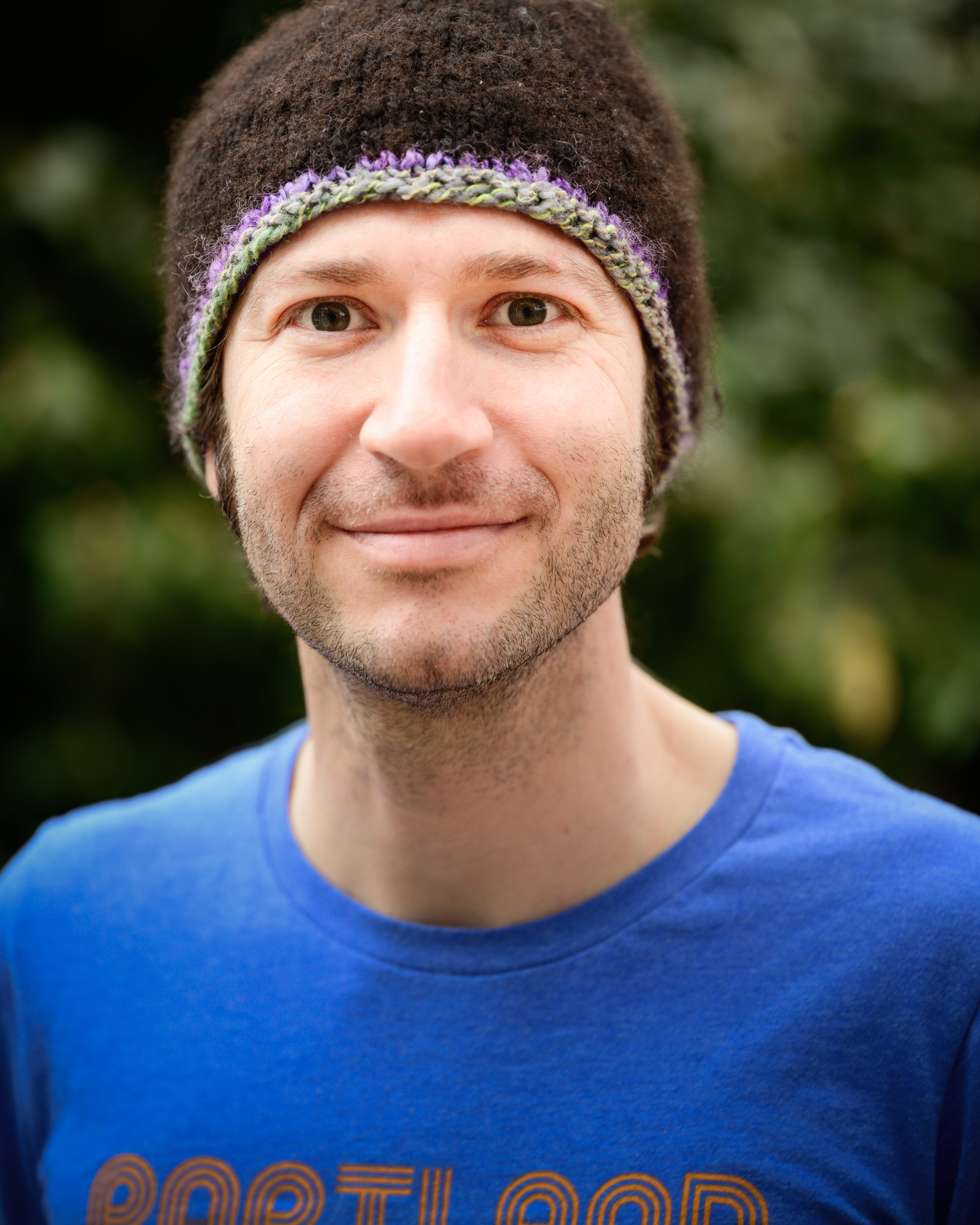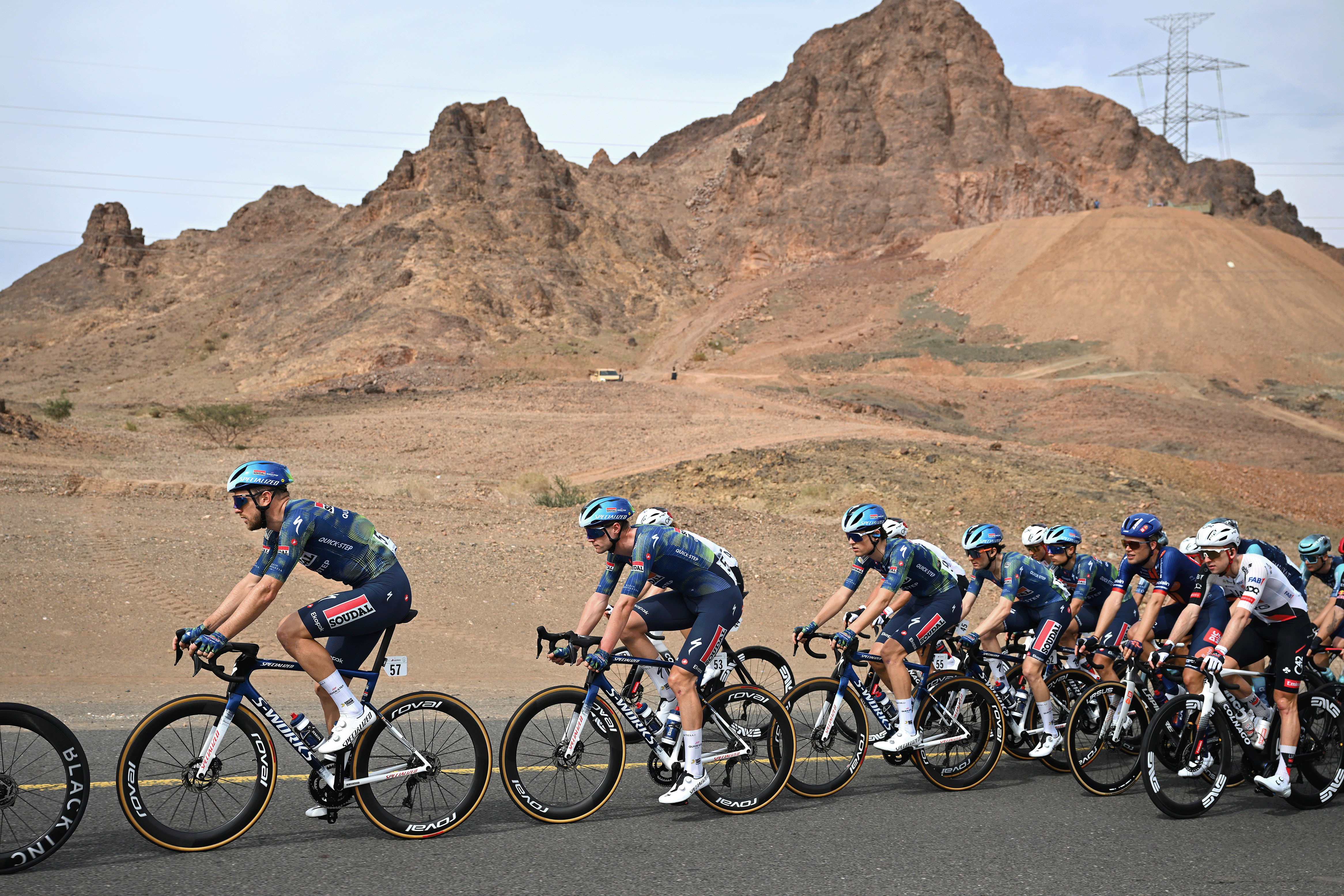Best cycling clothing brands: Our pick of the top companies making great products and a positive impact in the cycling sphere
Incredibly high-performance products and companies you can feel good about supporting
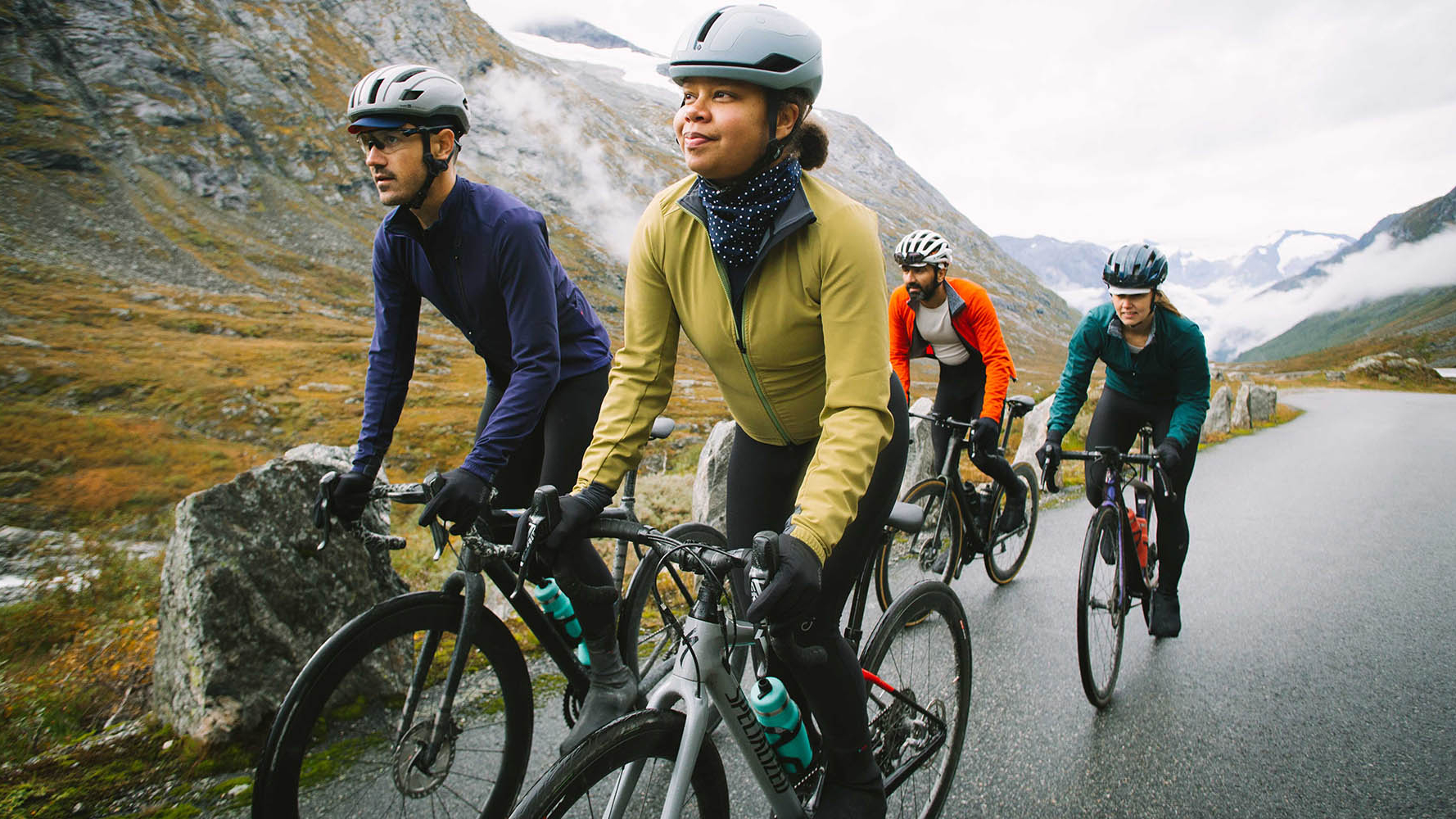
As cyclists, we spend a lot of time focusing on gear. Everyone wants to talk about the fastest bikes, the best wheels, and all the accessories that help us get the most out of every ride. There’s nothing wrong with that; it's fun, and there’s no reason you can’t obsess about it from time to time.
Just remember that one of the best returns on investment is the clothing you wear. So, if you are in full gear obsession mode, you might want to start with the best cycling jerseys, the best road bike helmets or the best cycling shorts. If you're in the market for a new bike, check out our guide to the best bike brands.
Like all of our buyer's guides, the point of those articles is to point out some of the best products in particular categories. What is the best product, though? The point of this article, the best cycling clothing brands, is to look beyond the experience of using a specific product.
This is a list of the best cycling clothing brands with an eye for those that do more than just make great kit. The brands here are not only innovators making some of the best technical clothing, but they also take a positive stance on ideas of sustainability, representation, and growing the sport. If that sounds good to you, keep reading to see what we've found.
Last updated on 4th January 2026 The guide has been updated to reflect changes in team sponsorships, product availability, and a long list of brands has been added. A warranty section was also added to each brand section.
1. Rapha
Rapha is a relatively modern voice in the world of cycling brands. Two decades ago founders Simon Mottram and Luke Scheybeler picked a name from a cycling team in the 1960s and started making fashion-focused road cycling clothes. Then, in 2013, the sponsorship of Team Sky (now Ineos Grenadiers) signalled a bigger entry to the world stage and more focus on performance. That's not what lands them on this list now though.
In many ways, the winding down of the Team Sky sponsorship in 2015 is when Rapha started down a new path. Instead of jumping to another men's team, the next sponsorship choice that Rapha made was for UCI Women's WorldTour team Canyon-SRAM. The wild design was unlike anything else out there, and there's no doubt it was a statement. The brand was signalling loud and clear that it was raising up women's racing.
Years of exciting collaboration with EF-Education also began around 2019, and the Rapha EF switchout kit announcements were events themselves during this time. Rapha ended its EF sponsorship at the end of last year and partnered with the USA cycling team as part of a long-term project.
Then, in 2018, Rapha made another statement with the introduction of the Explore line. The Explore line is a signal that Rapha is about more than traditional European racing. Arguably, these two signals have come together to define what makes Rapha the brand it is. The name Rapha is also synonymous with off-the-grid riding of all kinds.
Rapha publishes an impact and sustainability report, and it keeps a close eye on how the products it makes impact the world, with an increasing emphasis on recycled materials.
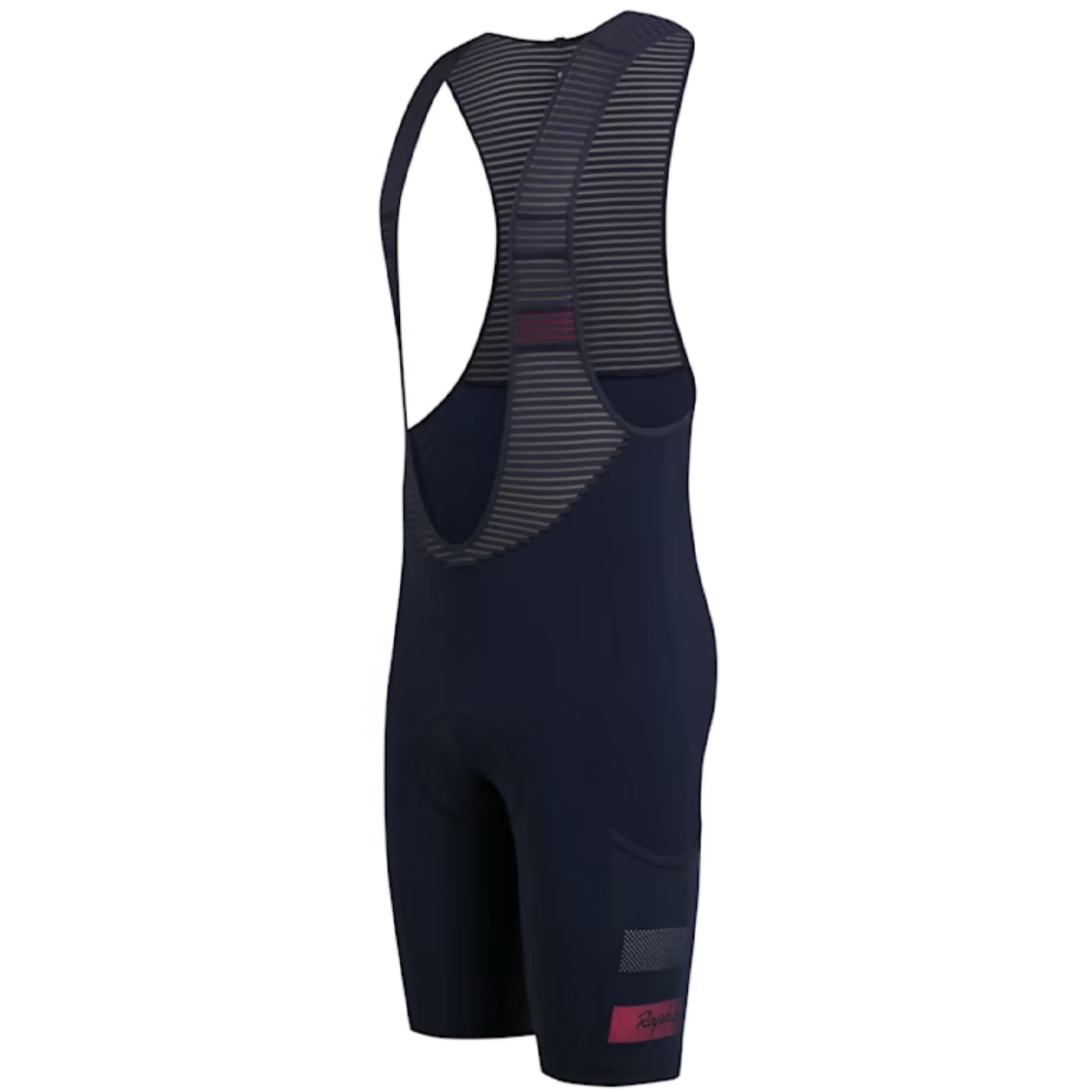
➕ Quick drying and water-resistant
➕ Lots of storage
➕ Reflective details
➖ Narrow leg gripper
There's some debate about who invented cargo bib shorts but it's irrelevant. No one was wearing cargo bibs until Rapha brought them to market and seemingly overnight turned them into a must-have for riders of all kinds. Even for a road cyclist, they are particularly handy for quick-access items such as snacks or a camera.
If you are more of a technical tee kind of rider, then you'll want to also take advantage of the pockets on the lower back. Either way, the chamois is a dual-density pad that "offers long-distance comfort and rapid overnight drying" and a free repair service helps with sustainability.
Read more details in our Rapha Cargo bib shorts review.
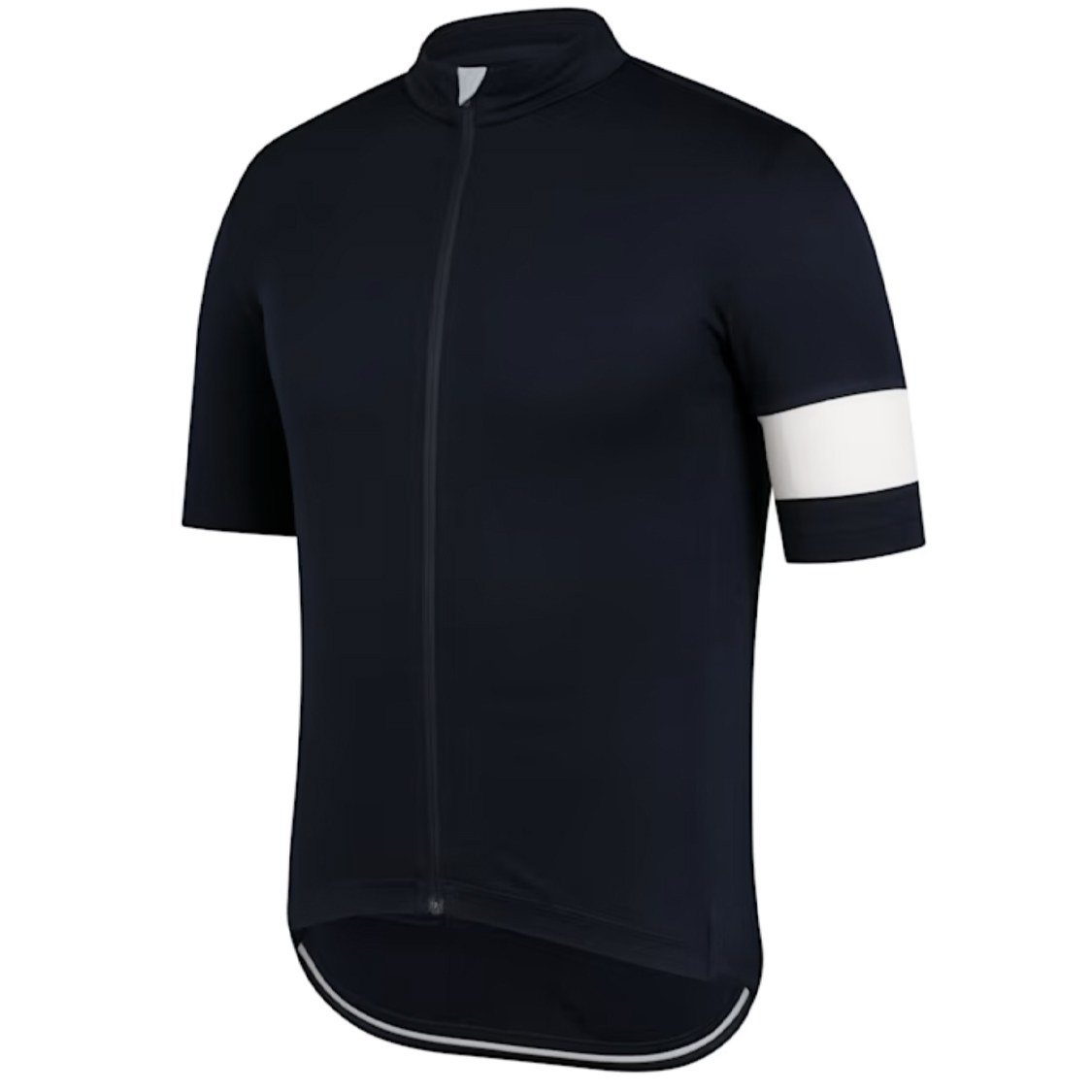
➕ Sustainable Merino
➕ Recycled Polyester
➕ Zippered pocket
➖ Heavy construction adds warmth
Updating the product that arguably built the foundation of a brand is no small task but after two decades, Rapha has kept the look and updated the technology. The latest version features an improved fit, longer sleeves, shorter overall length, and bonded seams to save weight.
Rapha has also updated the fabric to a new Merino blend called RPM150 (Rapha Performance Merino, 150g per square metre). Although it isn't as cool as the lightest jerseys out there, the slightly warmer material is great for cooler summer days. Rapha has incorporated recycled materials, which makes it a more sustainable choice too.
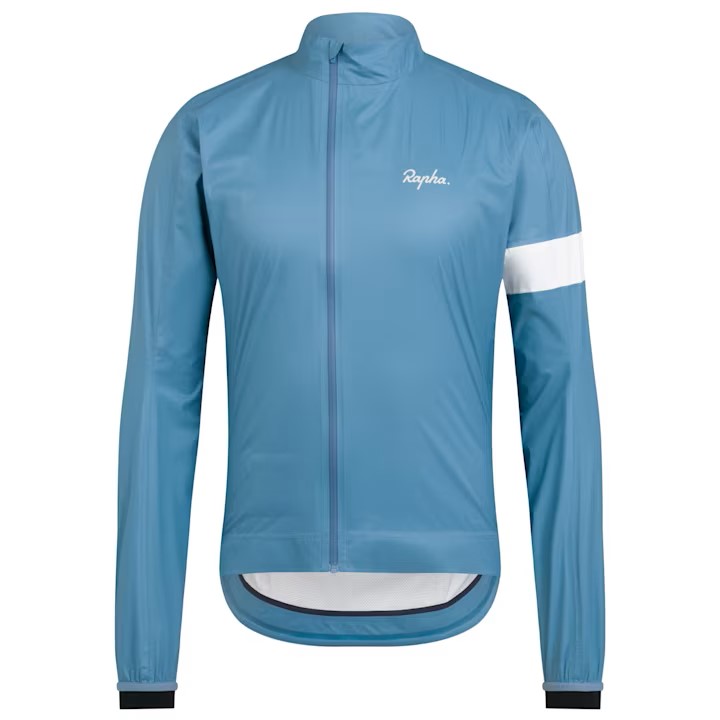
➕ Three-layer fabric with membrane
➕ Taped seams
➕ Underarm venting
➖ Can still get sweaty when working hard
Rapha's Core range offers the brand's quality at more affordable prices and includes the full range of items you're likely to need for your riding.
A rain jacket is one of the top pieces to have in your cycling wardrobe and we rated the Rapha Core Rain Jacket II among the best waterproof cycling jackets we've reviewed. It's lightweight and low bulk, but still includes a three-layer membrane construction with taped seams and an offset waterproof zip, while underarm venting holes help to keep you more comfortable.
Read more details in our Rapha Core Rain Jacket review.
2. Castelli
It's not a requirement to have a rich history if you want to make some of the best cycling clothing, but some brands have it. Castelli has a history spanning back to a small tailor shop in Milan in 1876. Since then, Castelli has earned quite a few industry firsts as a brand.
It was the first brand to manufacture Lycra race shorts, the first to use the sublimated printing process for jerseys and shorts, the first with thermal winter clothing, the first to make aero skinsuits; the list goes on and on. It clothed Fausto Coppi in silk racing jerseys when the rest of the peloton was still wearing wool, while the Gabba was the original high-performance jersey for racing in poor weather, a much-imitated innovation that's seen yet another upgrade to the Gabba R.
Today it still clothes some of the top pro racing teams and makes some of the best technical cycling clothing available across a range of price points.
Important for this article though, Castelli went through a change of ownership in the late 90's. Today Castelli is under the same corporate brand umbrella as Sportful. The parent company still hails from Northern Italy and MVC group has dedicated a significant portion of the website to sustainability efforts. Part of that is details about an initiative launched in 2021 to rethink the products from the ground up. The idea is to make the end product "more durable, reusable, easily repairable, and recyclable" and it's worth highlighting. That kind of thinking benefits a company, the customers, and the environment and that is the best kind of sustainability initiative.
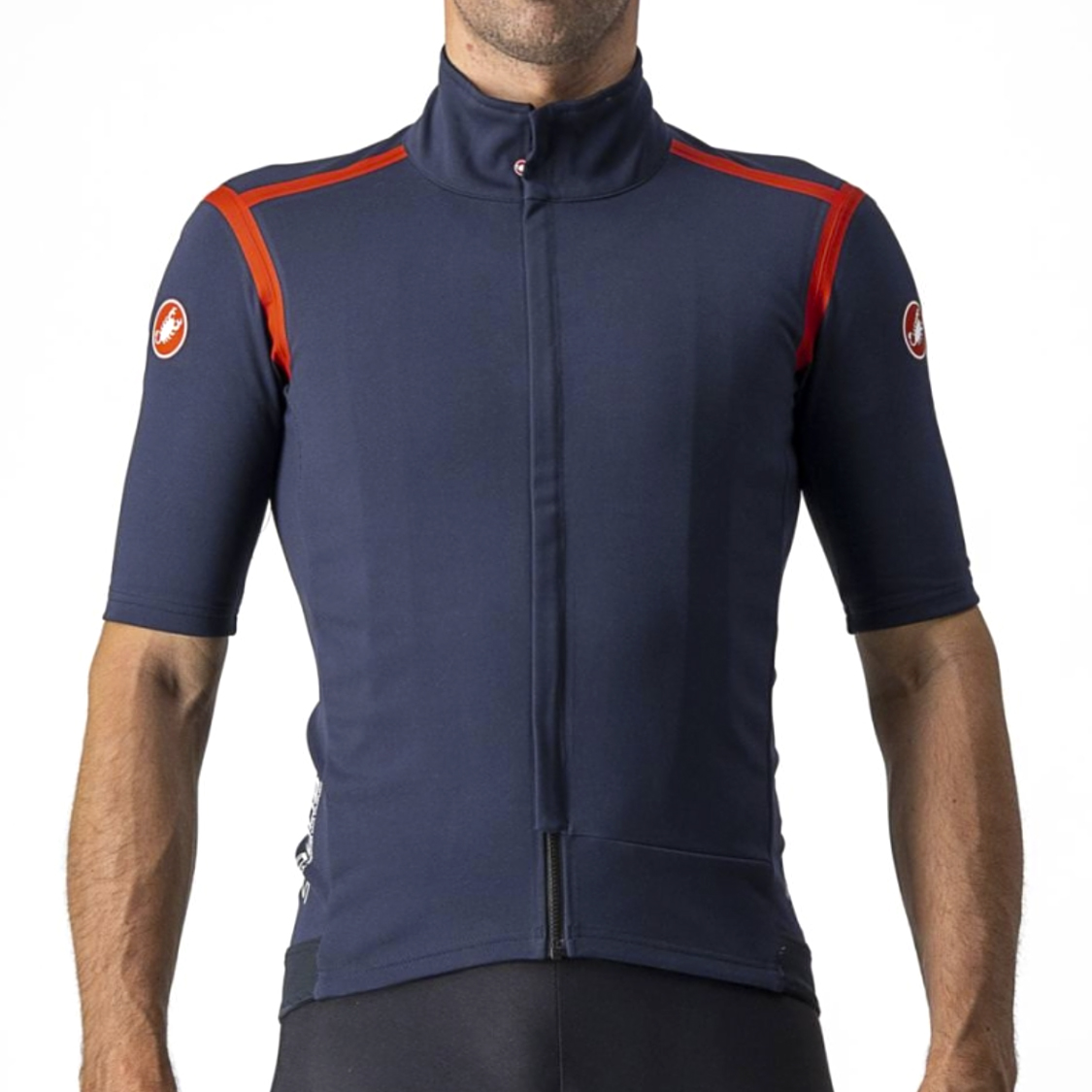
➕ Ratio of waterproofing to breathability
➕ Pocket specifically designed for a pump
➕ Pockets that drain
➖ Tight fit won’t work for everyone
In 2010, the original Gabba jersey changed how road riders approached wet weather. And the Gabba RoS 2 jacket is the latest jersey to carry the torch. It won't keep you bone dry in all weathers, but the Gore-Tex Infinium will protect you surprisingly well in bad weather. The long-sleeved Perfetto RoS 2 is probably all you ever need for short, hard rides, and the Gabba RoS 2 ups the adaptability even further by giving the option of using arm warmers.
If you want to further explore Castelli jacket options, take a look at our article covering which Castelli jacket is right for you?
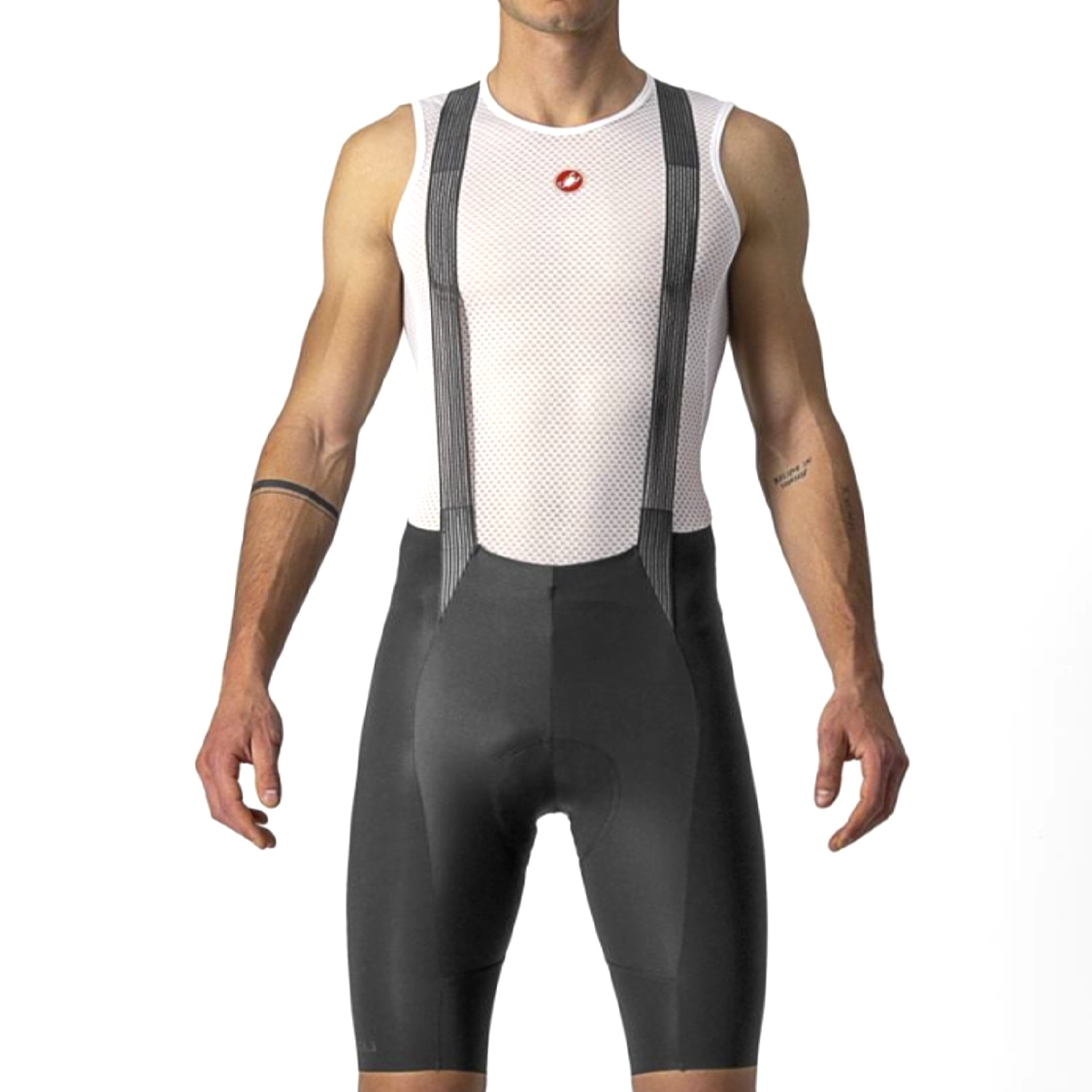
➕ High-compression fabric instead of leg grippers
➕ Progetto X2 Air chamois is the best on the market
➕ Aero optimisation
➖ Some seams aren't flat-locked
The Castelli Free Aero Race bib shorts had been one of the best pairs of bib shorts on the market for years and when Castelli redesigned them, it quietly changed the market. The Progetto X2 Air chamois didn't change, but it was already the perfect balance of thin and good for 12 hours plus. The real innovation came from the new fabric. It's compressive and it stays put without leg grippers. It's so different that when I initially reviewed the Castelli Free Aero RC bib shorts, I didn't fully grasp how revolutionary they were. Since then, I've started to use them as the standard to judge against.
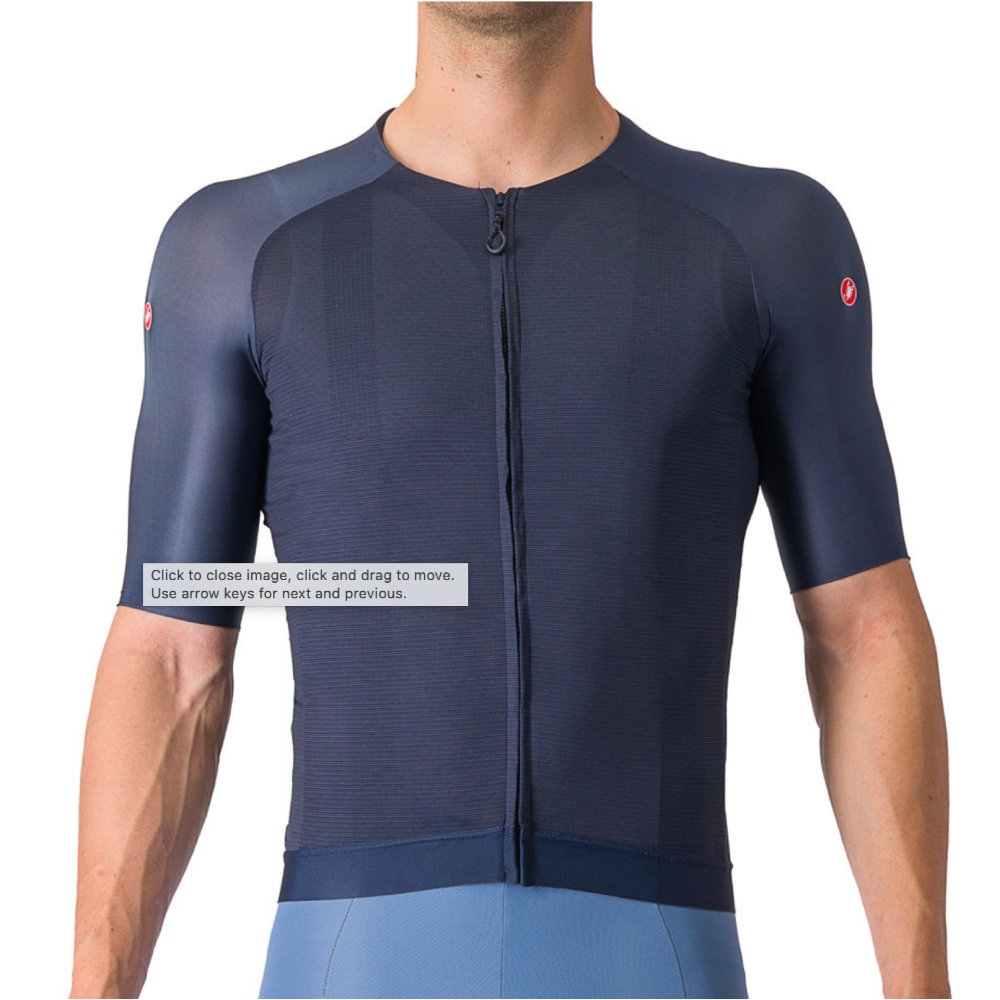
➕ Aero-optimised design
➕ Roomy pockets
➕ Long enough for tall riders
➖ Shorter riders may have zipper bulging
The Castelli Aero Race 7.0 jersey is one of the best short sleeve jerseys on the market, especially for those who ride in warmer conditions. Castelli uses a unique and rather genius design for the pockets that puts them way down at the end of the drop for aero performance and stability. The long torso of this Castelli jersey is also something that's going to appeal to a lot of riders who are tall and have a hard time getting a jersey to fit without being short.
3. Sportful
The history of Sportful is like many other technical clothing companies - an innovator and athlete created clothing they wanted to wear and it never stopped growing. In this particular case, in 1972 Giordano Cremonese, became intrigued by the challenge of a new 70km cross-country ski race taking place near his home. He felt that the clothes available at the time were inadequate for such a long race in a cold valley.
His solution was to create his own using state-of-the-art, for the time, acrylic fabrics. In 1985, after establishing itself as a successful skiwear brand, Sportful began to develop cycling clothing. As mentioned above, the Sportful parent brand acquired fellow Italian clothing brand Castelli in the late 90s.
Today, both brands are subject to the same corporate sustainability initiatives. Instead of secrets and competition, the parent company uses the added purchasing power to drive the sustainability of both brand names. In particular, parent company MVC highlights the switch away from using long-chain PFAS to shorter C6 chain solutions as it continues to move towards PFC-free waterproofing, such as that used in the Sportful Fiandre fabrics.
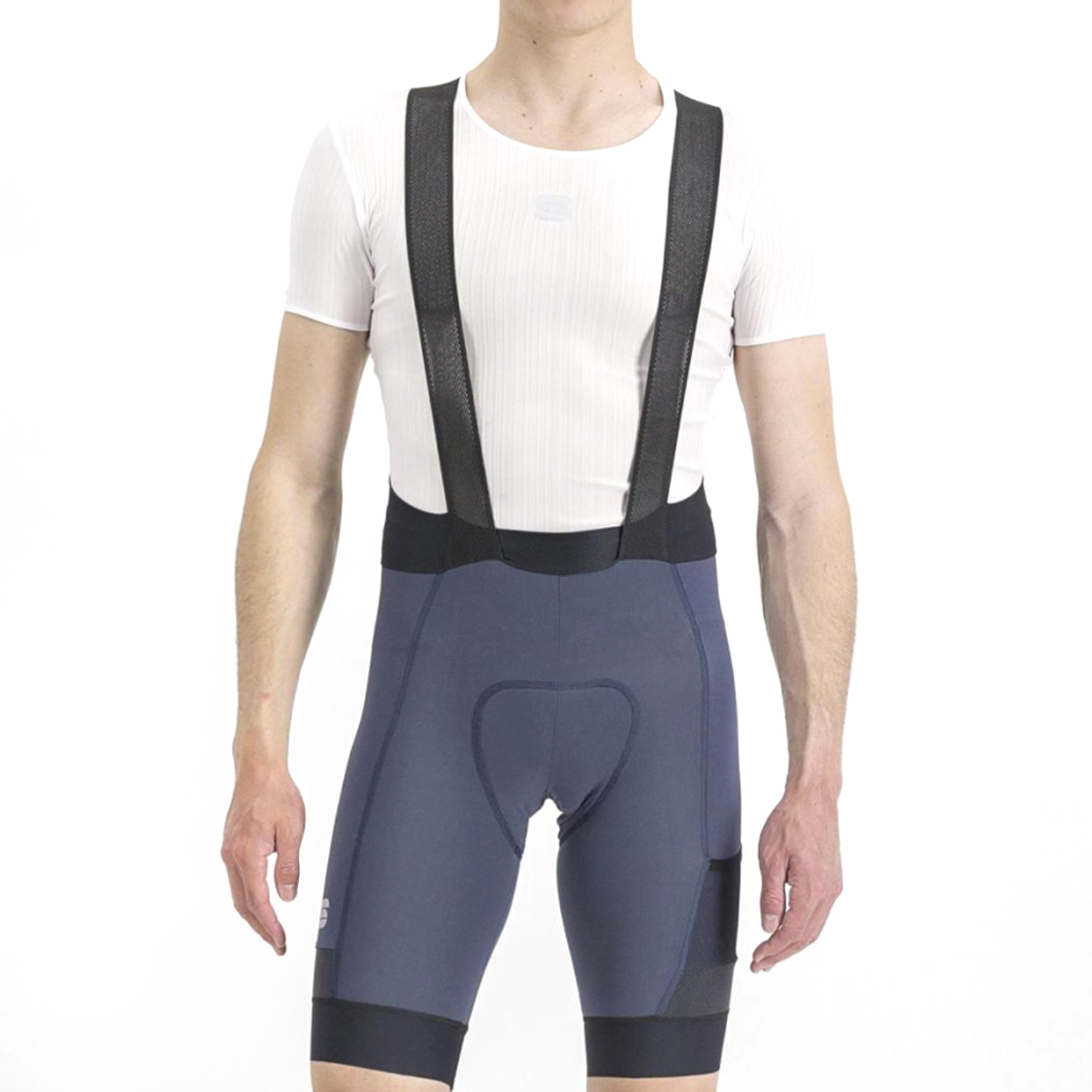
➕ Pro fit
➕ Colours available
➕ Low back pockets
➖ Only one thigh pocket
Although Rapha might be responsible for bringing the idea of cargo bib shorts to modern cycling, there are a lot of choices now. Sportful put down a flag and claimed the race gravel market segment with its Supergiara line and these bib shorts are fantastic. They do lack a second thigh pocket, but they come in fun colours and they have an innovative design. The height and structure help make sure you look your best even when bending at the waist in a very race-fit pair of bib shorts. If you prefer a tight fit, even on a gravel bike, Sportful is an excellent choice.
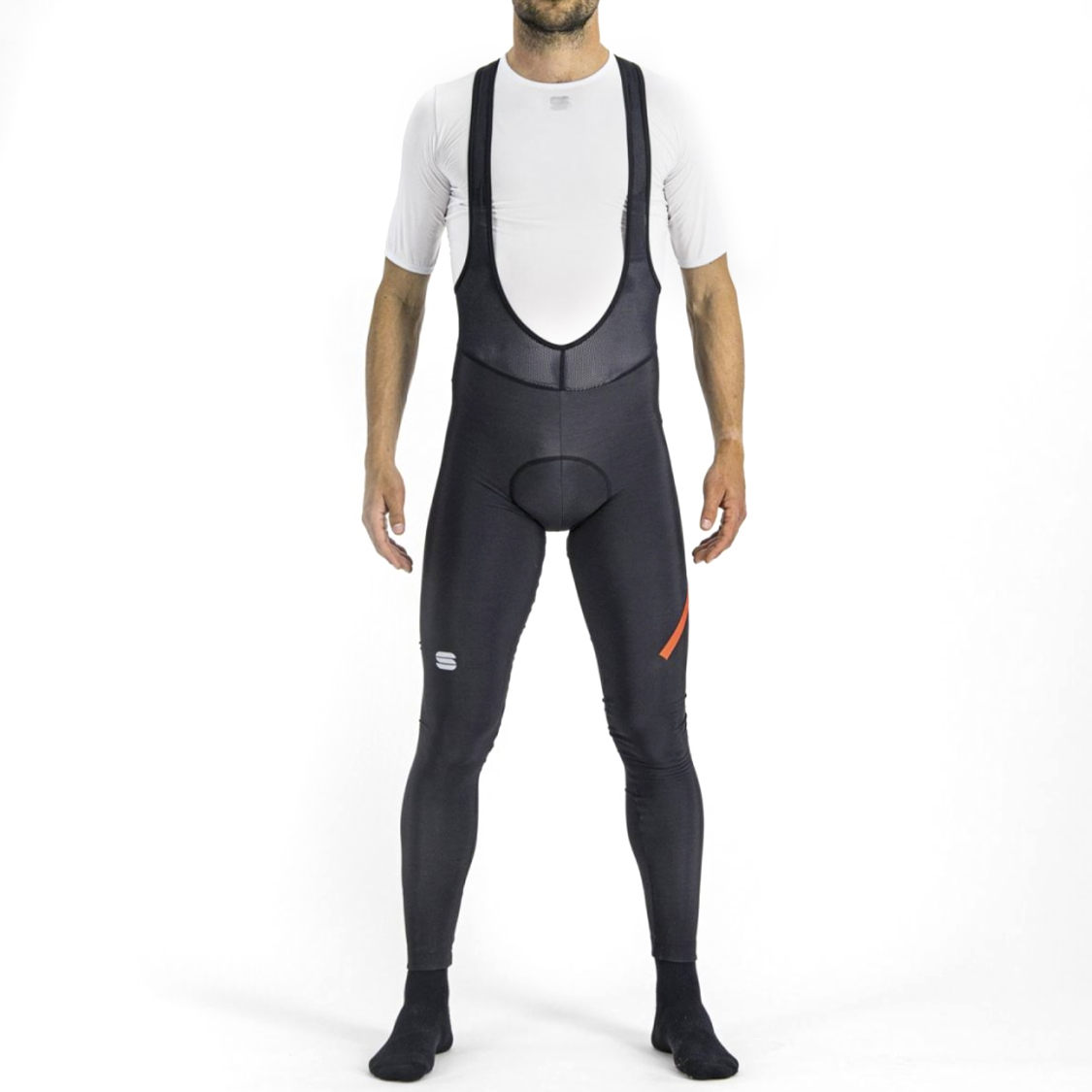
➕ Lightweight warmth with water resistance
➕ Minimal seams enhance water protection
➖ Poor weather resistance in the low back
Depending on when in the winter or where you are in the world, the weather you deal with can be drastically different. The best cycling kit companies have a range of clothes to handle all that variance but there's one piece that is frequently missing; if you'd rather stay away from shorts and leg warmers when it's warmer but still chilly, it's hard to find a solution. The Fiandre NoRain bib tights handle just that weather and even work if it rains. They aren't an extreme weather solution but they are comfortable and breathable. Perfect for when it's chilly and damp.
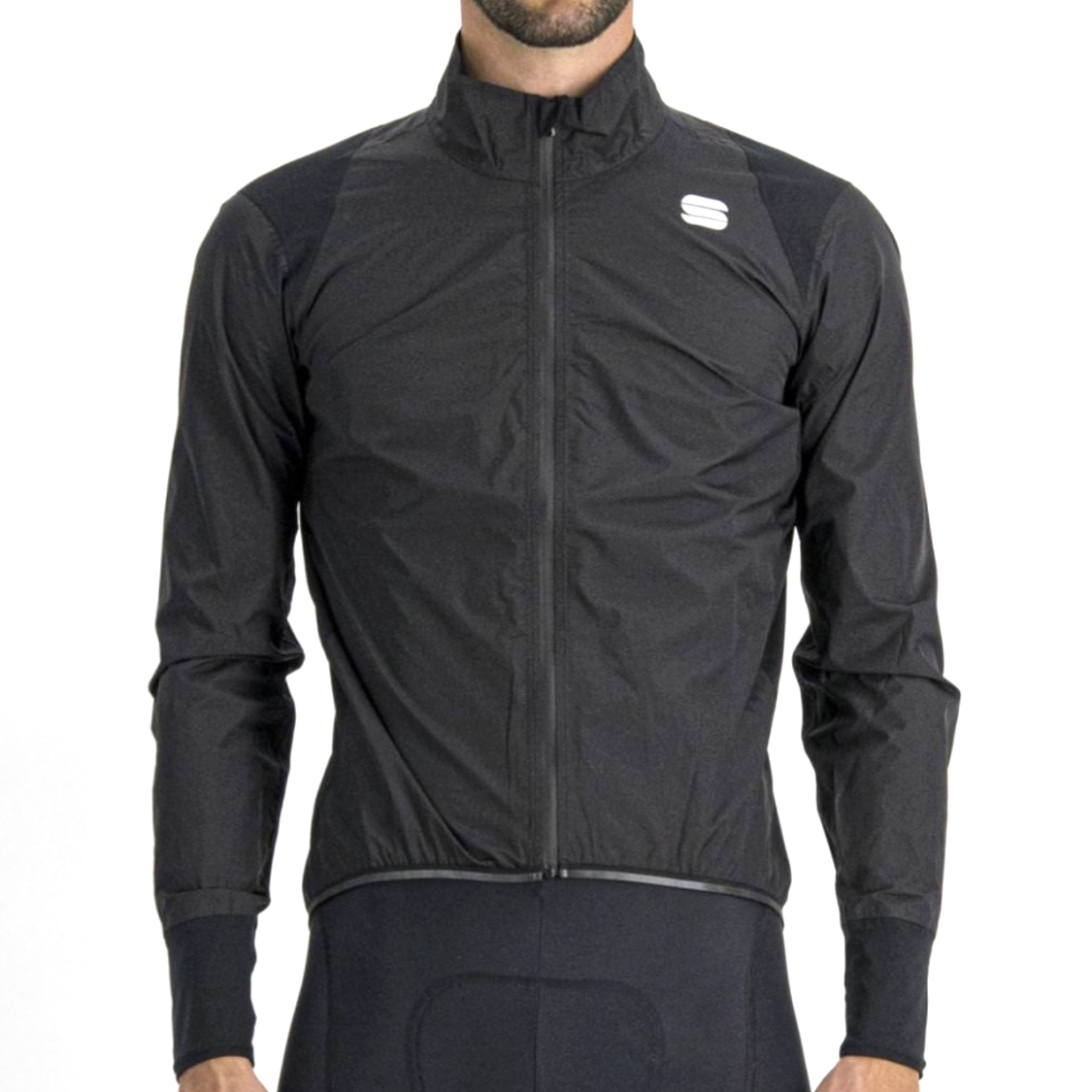
➕ Integrated stuff pocket
➕ Waterproof and with taped seams
➕ No flapping in wind
➕ Comfortable against the skin
➖ Zipper isn't great
Emergency jackets pack down so small that you can bring them with you on every ride. They are ideal when an unexpected shower breaks out but they also keep you warm on long descents after you've worked up a sweat climbing for a few hours. Lots of brands have options, but the Sportful Hot Pack No Rain jacket is one of the best. It's not the cheapest, or the most expensive, but it feels decent against your skin and the shoulders don't flap in the wind. Not everyone needs a jacket like this, but if you do, the Sportful option hits the sweet spot.
Read more details in our Sportful Hot Pack No Rain jacket review.
4. Pearl Izumi
Pearl Izumi is a brand of dualities. It's unassuming, with a wide distribution network. Walk into many small bike shops or outdoor stores with bike sections, and Pearl Izumi tends to be there. The prices are relatively affordable, and the gear is well-made. Look a bit further, though, and Pearl Izumi has another side. There is incredibly innovative and tech-focused gear in the Pearl Izumi portfolio. It was the first with mountain bike-specific apparel, the first to use the BOA closure system for its shoes, and the first to make a lobster cycling glove.
That's just the product-specific side of the brand, though. When it comes to sustainability and representation, the brand puts others to shame. In a way that is almost completely unmatched, Pearl Izumi has embraced the idea of making the world a better place through the footprint the brand leaves. The goal for materials is ever-shifting and always getting harder based on progress made. Right now, the brand is on track to reach a goal of 98% of products made from sustainable materials.
It's also worth looking at the roster of athletes Pearl Izumi sponsors. They are people who look different to traditional cyclists. People like Brooke Goudy, who proudly states, “I surely can go forward and be the representation for the young girls like me, the young girls of colour, to know that these trails belong to them, that this community of mountain biking, that belongs to us too.”

➕ Perfect pocket design
➕ Just right length
➕ Polartec Alpha is breathable and highly insulative
➖ Unusable without a shell
The Pearl Izumi Pro Alpha layer features Polartec Alpha insulation, which might be the best insulation available on the market right now. It's lightweight, doesn't absorb water, and it packs down very small. Although you can find it in a range of jackets, this offering from Pearl Izumi allows you to layer with the insulation instead, and choose a shell that works for you afterwards.
You can read more details in our Pearl Izumi Pro Alpha Layer review.
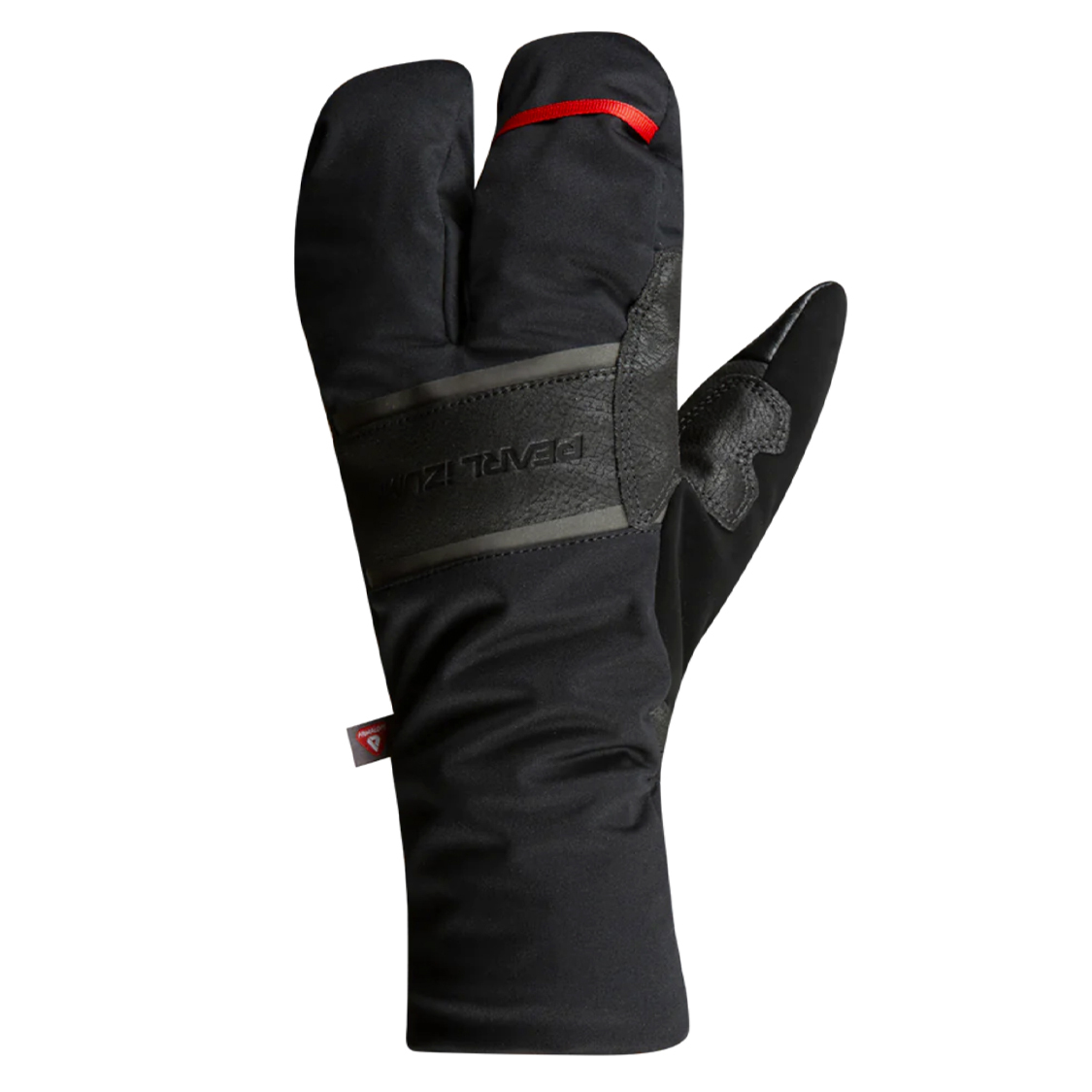
➕ AX grain palm feels like leather but it's vegan
➕ Warmth vs price
➕ 35% recycled content
➖ Wet weather performance isn’t great
Keeping your hands warm on the bike is a huge challenge. They sit out in the wind and don't move much. Solving that challenge is something that can be very costly and there's not always much return on investment. Anyone who spends much time trying to tackle this challenge will have come to recognise the Pearl Izumi AmFIB lobster gloves. The somewhat infamous gloves offer just enough dexterity to shift and brake, don't cost a fortune, and keep your fingertips the right colour.
Read more details in our full Pearl Izumi AmFIB Lobster Gel gloves review.
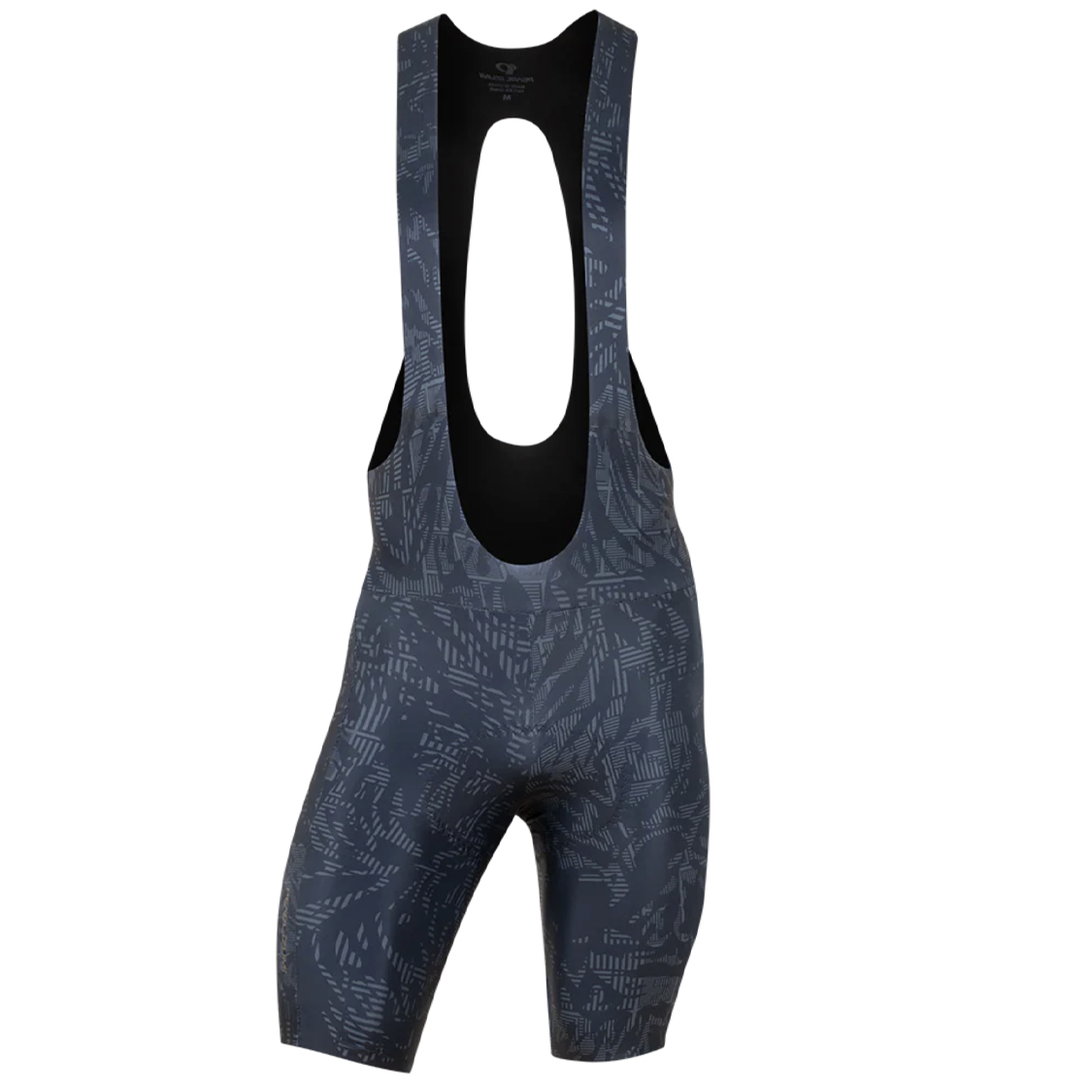
➕ Excellent Levitate Pro chamois
➕ Comfortable shoulder straps
➕ Super soft fabric
➖ Front panel needs better patterning
While some brands have chosen to focus on traditional racing, Pearl Izumi is holding strong to the brand's connection with cool people, doing cool things on a bike. A great expression of that in the product offering is the Pearl Izumi Pro bib short. The Pro bib short was one of the first to get the latest Levitate bib chamois and it only added further to what was already an amazing all day in the saddle kind of bib short. The chamois and the fabric feel incredible and you can often find good deals.
Read more details in our full Pearl Izumi Pro bib shorts review.
5. Endura
Endura cycling clothing is a brand founded in Scotland in 1993 by Jim MacFarlane. Jim was dissatisfied with the cycling clothing available at the time, so he made his own. Despite his interest in time trials, the brand found its feet producing mountain bike clothing. The weather in Scotland being what it is, it will come as no surprise that it makes performance clothing that excels in all conditions. Today, the company produces technical clothing for both road and off-road disciplines.
In the past, Endura was the clothing sponsor for team Movistar, who developed and raced in Endura’s Pro SL and D2Z Aero kits. Endura left the WorldTour in October 2019, stating that the UCI’s restrictions were a "developmental dead end." With fewer restrictions, Endura hopes to further develop cutting-edge clothing.
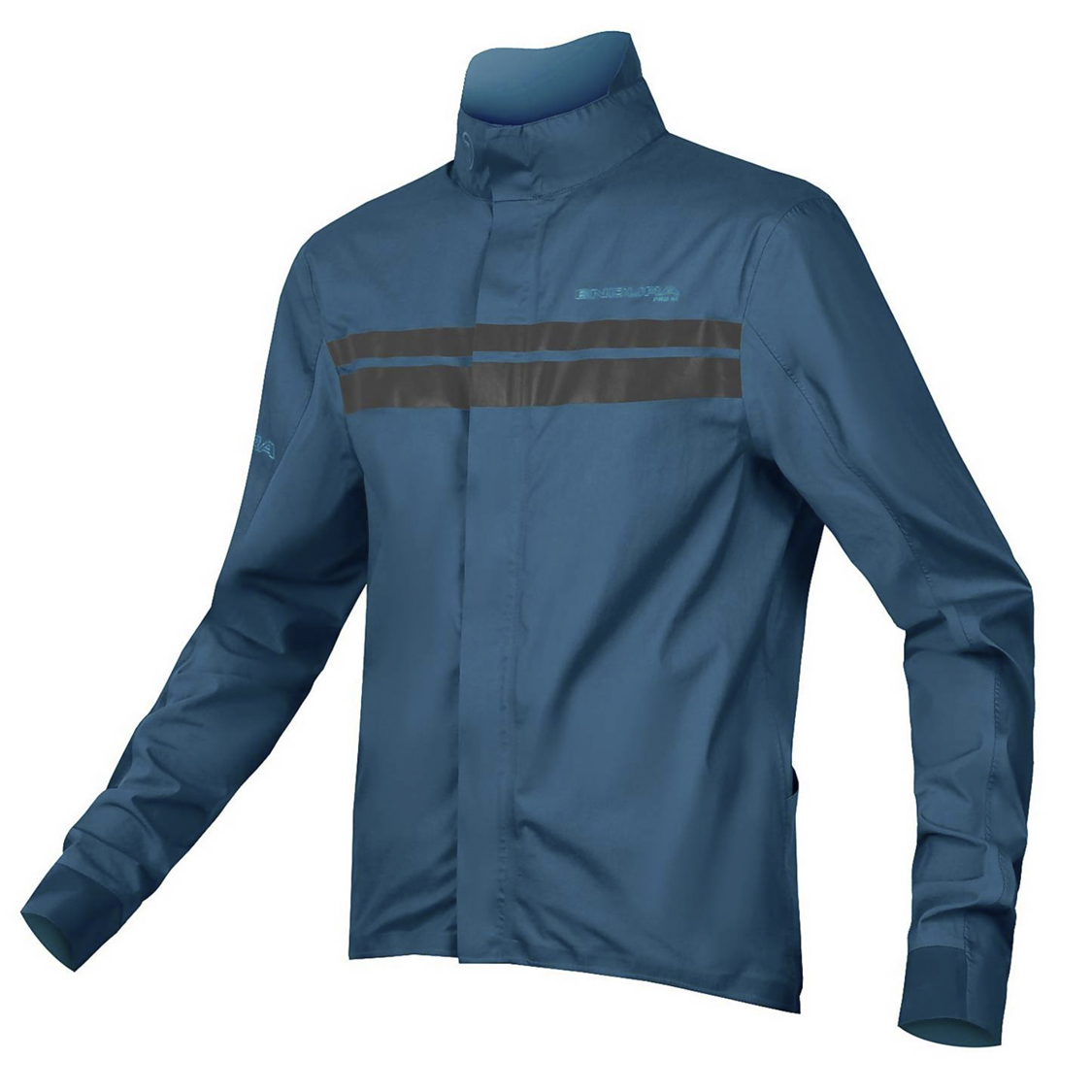
,➕ Rear pocket access
➕ High collar
➕ Great drop tail length
➖ Prone to sweat build-up
For truly wet weather, there's nothing more capable than a hard shell. For Endura, that means the Pro SL jacket. It's made from Endura’s ExoShell4.0, which uses a membrane sandwiched between a liner and a denier tricot laminate protective outer. This material boasts a claimed breathability rating of 60,000g/m²/24hr and a waterproof rating of 20,000mm to let the sweat out and stop the rain from getting in. The fit is generous and comfortable with no flapping in the wind. It’s just right as an outer layer paired with the right insulation.
Read more details in our full Endura Pro SL Shell Jacket review.
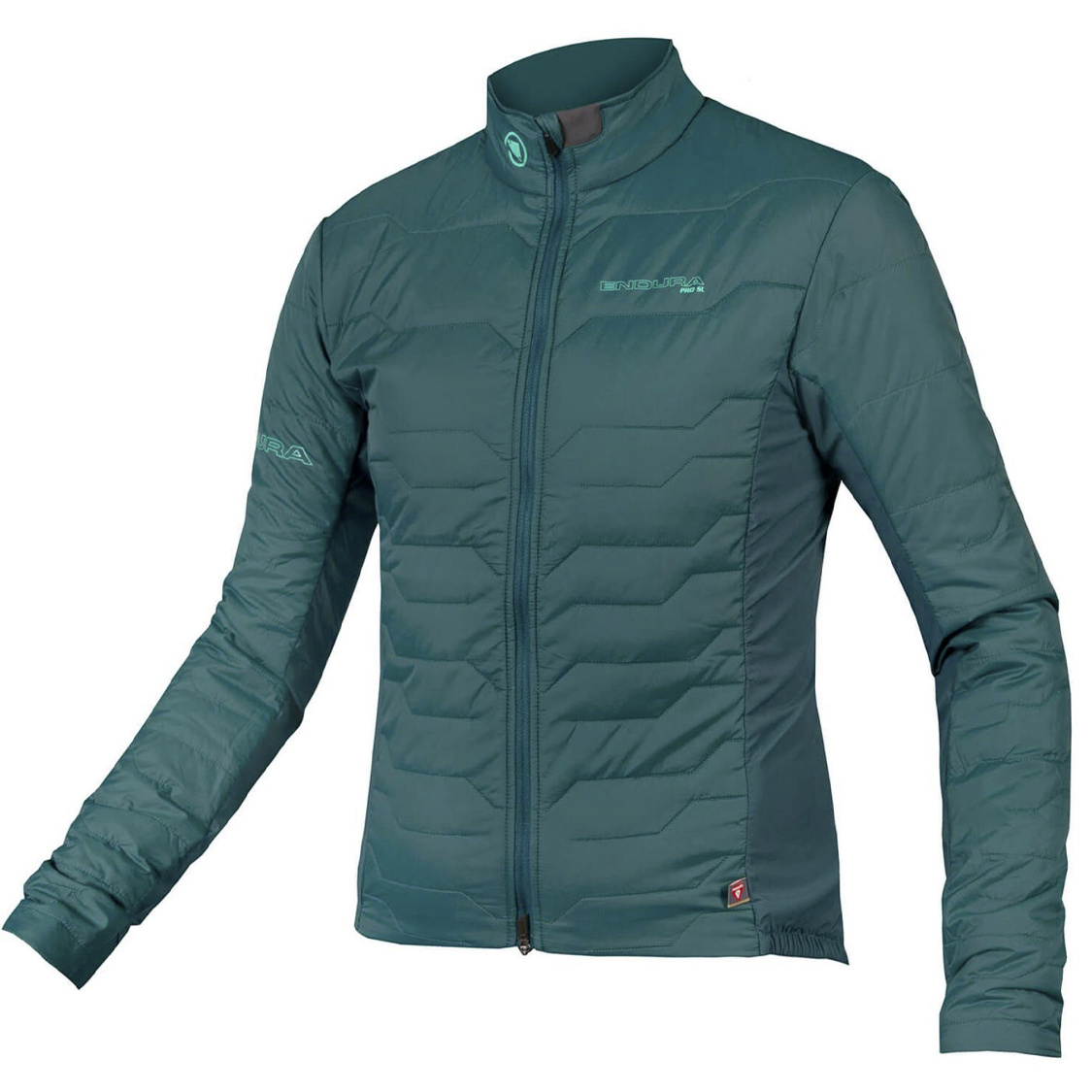
➕ Exceptionally warm
➕ Two-way zipper
➕ Comfortable tailoring
➖ Narrow centre pocket
The Endura Pro SL Primaloft II is all about flexibility. It's exceptionally warm and windproof, and it will hold warmth even when wet. The front of the jacket uses the heaviest Primaloft insulation, while the arms and rear are less insulated. If it's cold but dry, the pockets mean you only need a base layer under it. If it gets hot, use the underarm perforations and two-way zip on the front. When the weather is at its coldest and wettest, pair it with the Pro SL Shell Jacket II and you can still be comfortable.
Read more details in our full Endura Pro SL Primaloft II jacket review.
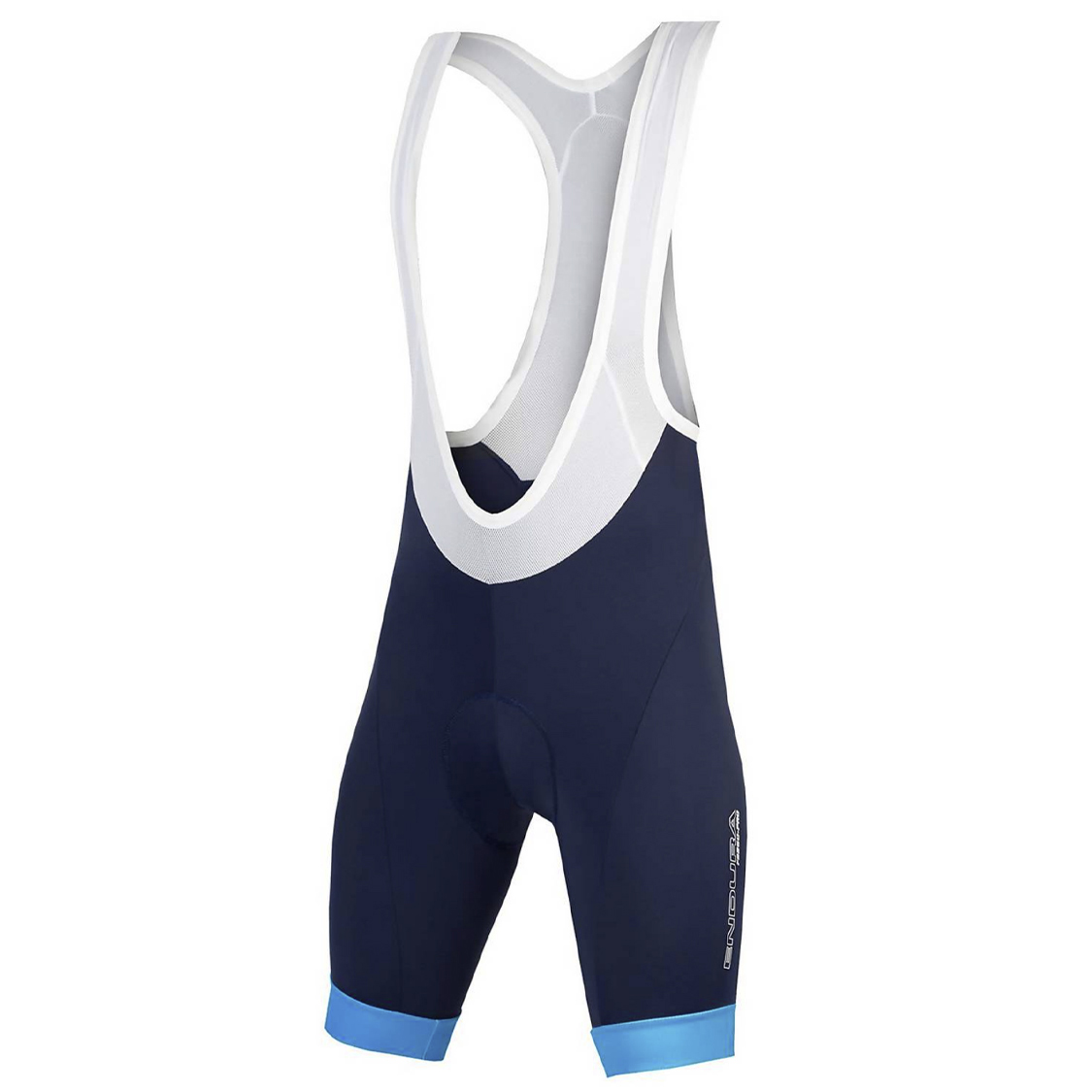
➕ Lots of colour options
➕ Excellent price
➕ Gel insert chamois
➖ Branding on the legs can come off
Yes, Endura has a reputation for making mountain bike and winter clothes, but the brand also makes excellent summer road riding products. According to Endura, the most popular bib short in the catalogue is the Endura FS-260 Pro. It makes sense because the pricing is almost unheard of when you start to look for a quality pair of bib shorts. There is more to it than just a bargain though. The chamois keeps bulk to an absolute minimum while gel inserts make sure that you won't ever develop bruises over your sit bones.
6. MAAP
MAAP cycling has only been around since 2014 and is a relative newcomer in riding apparel. There's a definite fashion element to the brand founded by Oliver Cousins and Jarrad Smith. The pair bring decades of design and fashion experience to the table and have previously worked with the likes of Stussy, Mambo and Globe.
There is no doubt that MAAP gear is stylish. It's not to the detriment of performance though. MAAP’s fabrics come from Swiss and Italian mills with production in Milan. The brand has even worked with sports scientist and founder of Adaptive Human Performance Ken Ballhause to design its own chamois. That's only one aspect of what performance means though.
An equally important performance metric is longevity. Cycling clothes are expensive and we want them to last but clothes that last are also better for the environment. If you check the MAAP sustainability statement, there is a lot of information about the brand's use of Bluesign or Oeko-Tex certified fabrics. That's positive, of course, but sometimes that feels like a conceptual idea. When it comes to the clothes we buy, the statement "we can ensure that every current product on offer is designed to last as long as possible" is an easy win for both the environment and the wallet.

➕ Bluesign Certification
➕ Vibrant colours
➕ Big tooth zipper that’s easy to use
➖ Pockets are high
Like everything about MAAP, the Alt_Road collection hasn't been around all that long. The brand has only existed since 2014 and it was initially an option only for road cycling. Clothing for adventures has been in the portfolio for only a few years, but out of the gate, it's unique and very good. The material is a mix of natural and synthetic fibres that really stand up to abuse on the dirt. Perhaps even more core to MAAP is that it's both Bluesign-approved and offered in colours that are vibrant and unforgettable.
Read our MAAP Alt_Road half-zip jersey review for more.
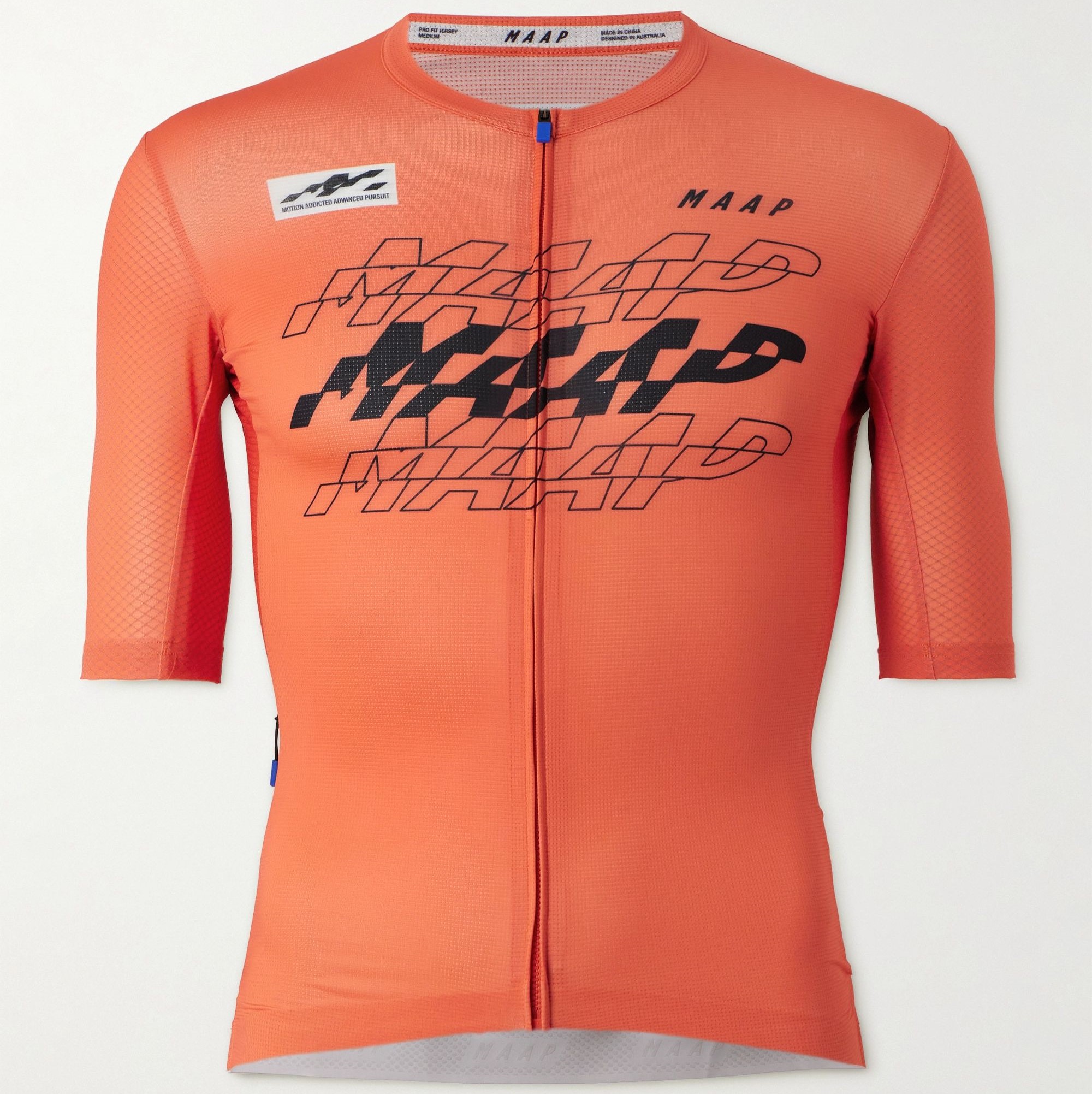
➕ Bluesign Certification
➕ Bold design
➕ Perfect fit
➖ Pockets are high
MAAP makes a whole range of clothes, all of which provide great quality, but it's their jerseys that are so unique, which is why I have included two of them on this list. As mentioned when talking about the company, MAAP is a brand that brings fashion design to cycling. It's more than that though, and you can really tell when looking at the Pro Air Jersey. The style isn't your everyday fashion, it's vibrant and different. It's typographic art and love it or hate it, it's unique.
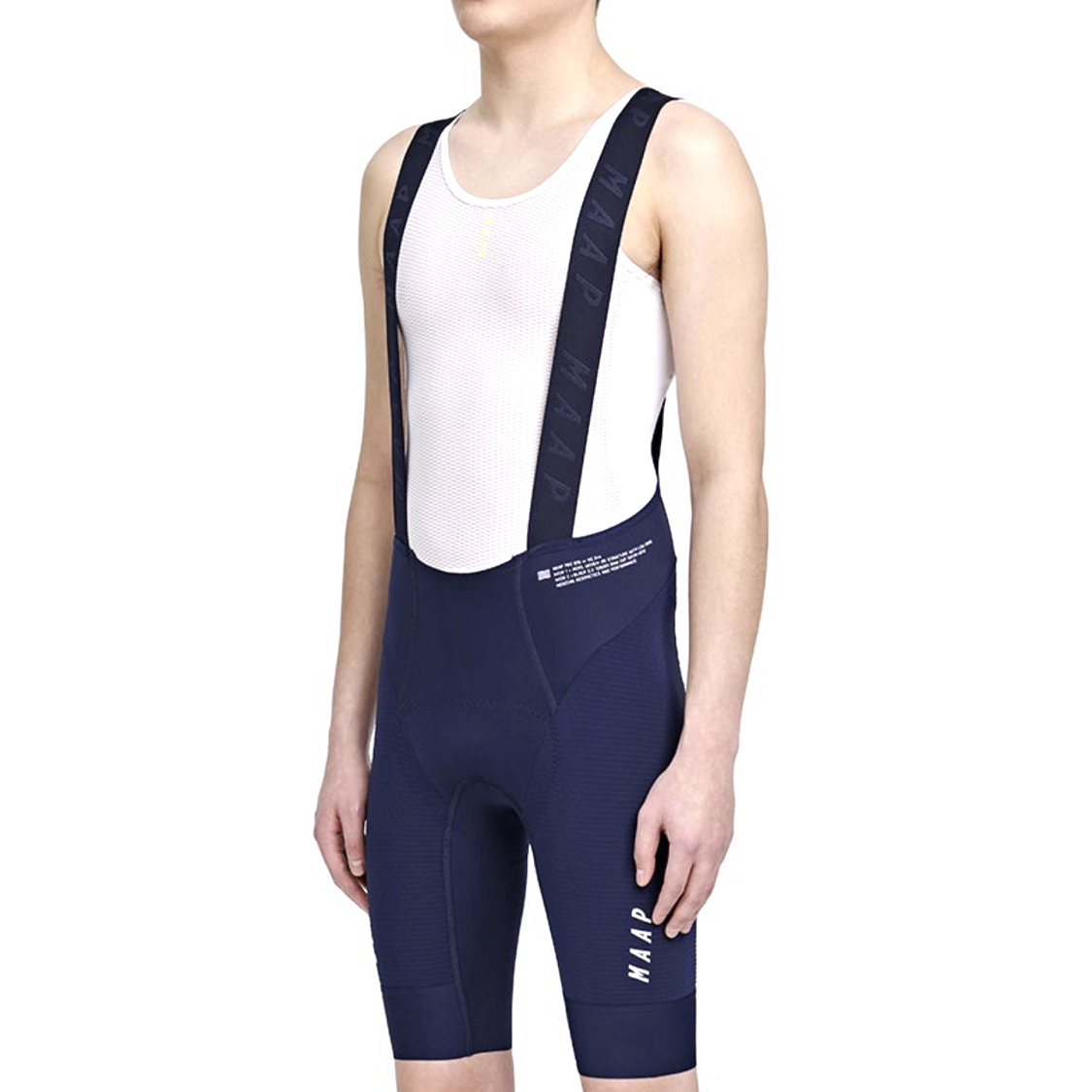
➕ No inner leg seam
➕ Raw cut front seam
➕ OEKO-TEX Certified materials
➖ Expensive
The first-generation MAAP Pro bib short was a product almost two years ahead of its time. MAAP used a fabric unlike anything on the market at the time and it soon started to pop up in other options from brands like Assos and Eliel. For the MAAP Pro bib short 2.0, the fabric is more conventional but the patterning is where the biggest innovations are. Seams along the inside of the thigh are a common chafing issue from even the best manufacturers and MAAP removed them completely. Of course, things like a perfect fit, great colours, and a high-quality chamois are along for the ride. The only downside is a very high price.
Read our full review of the MAAP Pro Bib 2.0 bib shorts.
7. Velocio
Hailing from New England, Velocio was co-founded by Aussie former pro, Kristy Scrymgeour. It is a brand with foundations built on providing cycling kit to women and women alone, flying in the face of male-oriented marketing prominence. Today, the brand caters to all genders but continues to champion diversity and inclusivity with its broad range of sizes and willingness to showcase a variety of body types and ethnicities in the marketing of its products.
Beyond the concepts of inclusion, there's a strong culture of sustainability built into everything that Velocio does. One thing that means is lots of recycled materials. To that end, in April 2018, Velocio transitioned the Signature Bib Short to 100% recycled lycra. The brand didn't stop right there though. Starting with the 2019 collection, "Velocio incorporated recycled fabrics into more than half of the collection."
On a technical level, the brand's clothing has impressed each time we've tested it, from winter gloves to summer shorts and everything in between. It is also committed to reducing its environmental impact, using BlueSign and/or Oeko-tex certified materials, renewable energy and biodegradable packaging for everything it makes and sells.
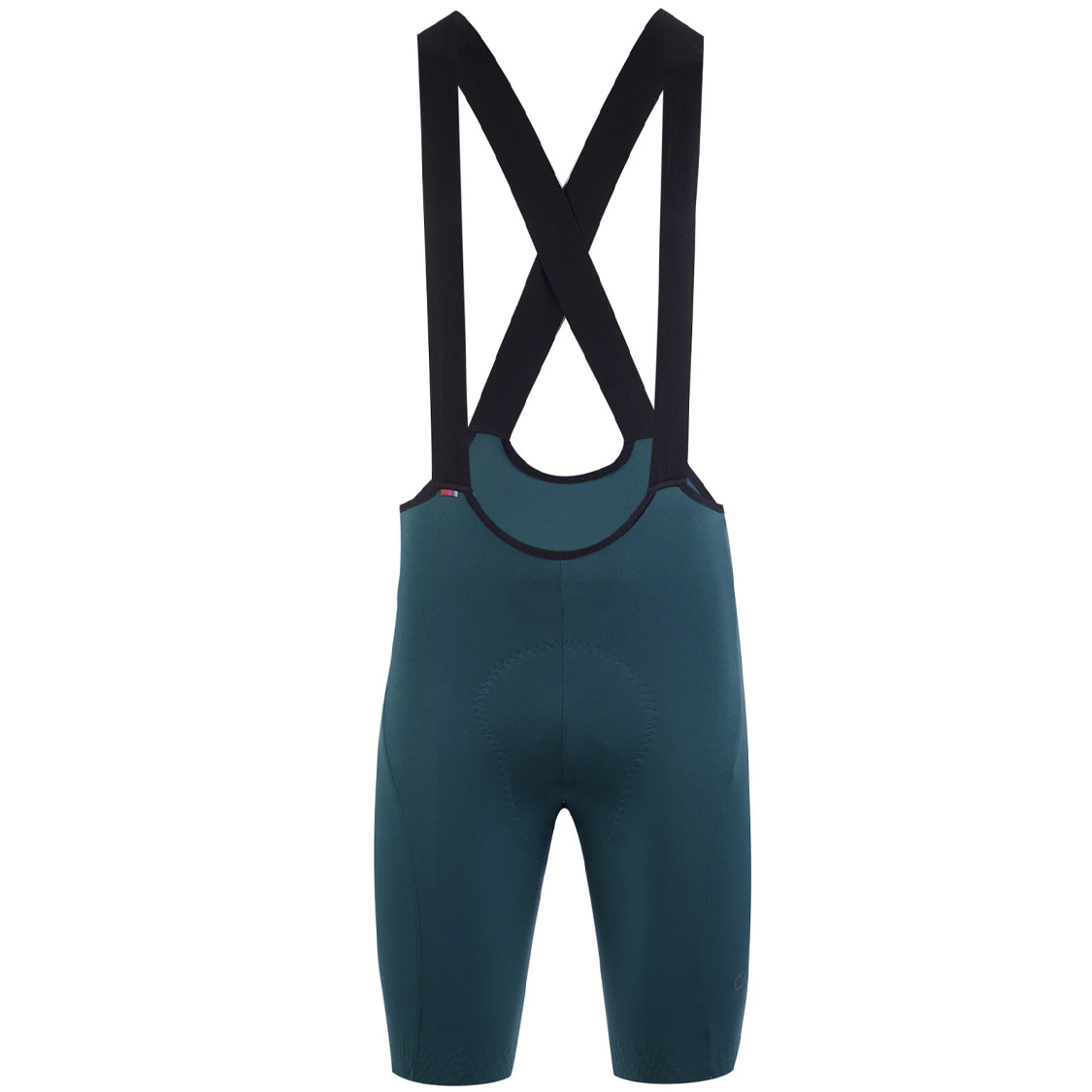
➕ Leg grippers are easy to get into place
➕ Comfortable all-day chamois
➕ Gorgeous colours
➕ Excellent front height
➖ Front of chamois lacks modesty
The Luxe bib shorts are one of the staple products in the Velocio range. The bib shorts' ultra-soft fabric, high-quality chamois, comfortable bib straps and overall fit make the Luxe bibs every bit as good as what's on offer from the brand's better-known competitors and live up to the 'Luxe' name.
The women's version of the shorts also features the brand's FlyFree technology, which makes them easy to pull down for a quick nature break, doing away with the need to completely disrobe.
Read more details in our Velocio Luxe cycling bib shorts review.

➕ Merino wool fabric that doesn’t sag
➕ Breathable yet insulating
➕ Long lasting
➖ Narrow pockets
There are a lot of people who have a deep love affair with merino wool cycling clothes. Then there's everyone else who really doesn't get it and isn't interested in a casual, loose, fit jersey. Both Velocio and MAAP have a take on a modern performance jersey built from merino and they are totally different. The Velocio Concept Merino jersey is ultra-light and thin while still managing plenty of structure and compression. It does offer a bit more warmth than the lightest synthetic jerseys but that also helps extend the window of wearability.
Read more in our Velocio Concept bib shorts and Merino jersey review.
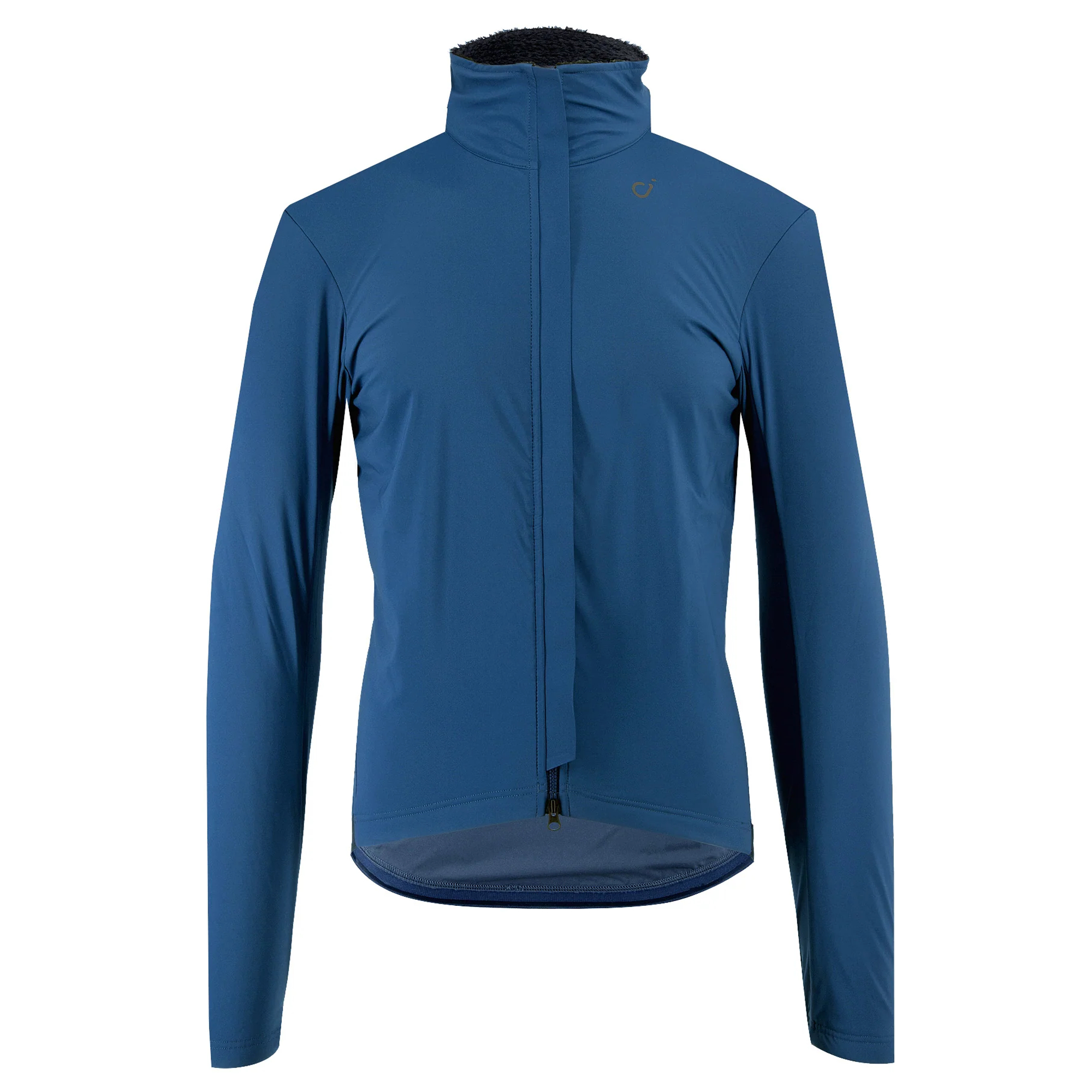
➕ Extremely warm
➕ Roomy enough for plenty of layers
➕ Never constricting
➕ Shrugs off water
➖ Can overheat during intense efforts
The Velocio Alpha Zero Jacket has become my go-to for cold, damp winter rides. While it lacks reflective details, extra pockets, adjustment or a valuables pocket, it delivers where it matters most—warmth and comfort. With Polartec Alpha Direct insulation in key areas and a soft, stretchy fit, it’s perfect for long, steady rides in freezing conditions. I’ve tested it in mist, fog, and near-zero temps, and it kept me toasty—almost too toasty for someone who runs warm.
You can read more details in our Velocio Alpha Zero jacket review.
8. POC
When you think about the best cycling clothing brands, it's unlikely you think about POC. The brand is best known for its helmets and we've got two of them in our best road bike helmets buyer's guide. There is more to the brand, you can find some of the best clothes made with a POC tag on them.
As we've explored those clothes on this site with reviews like the one covering the POC Supreme jacket, something else has come up. POC is moving aggressively towards better business practices as they relate to sustainability. It means items like the POC Myelin helmet that uses recycled materials, glueless construction and a design with disposal in mind and it also means clothes with a similar focus on sustainability.
As with most of the companies listed here, POC has a part of the website dedicated to this info. Instead of just calling it an impact report though, the brand calls the initiative Project Blueprint. On the site, there is one piece of text that sums it all up beautifully. POC states "This is in no way a process with a finish line to cross, we will have to keep learning and questioning old truths going forward as new materials and innovations become available."
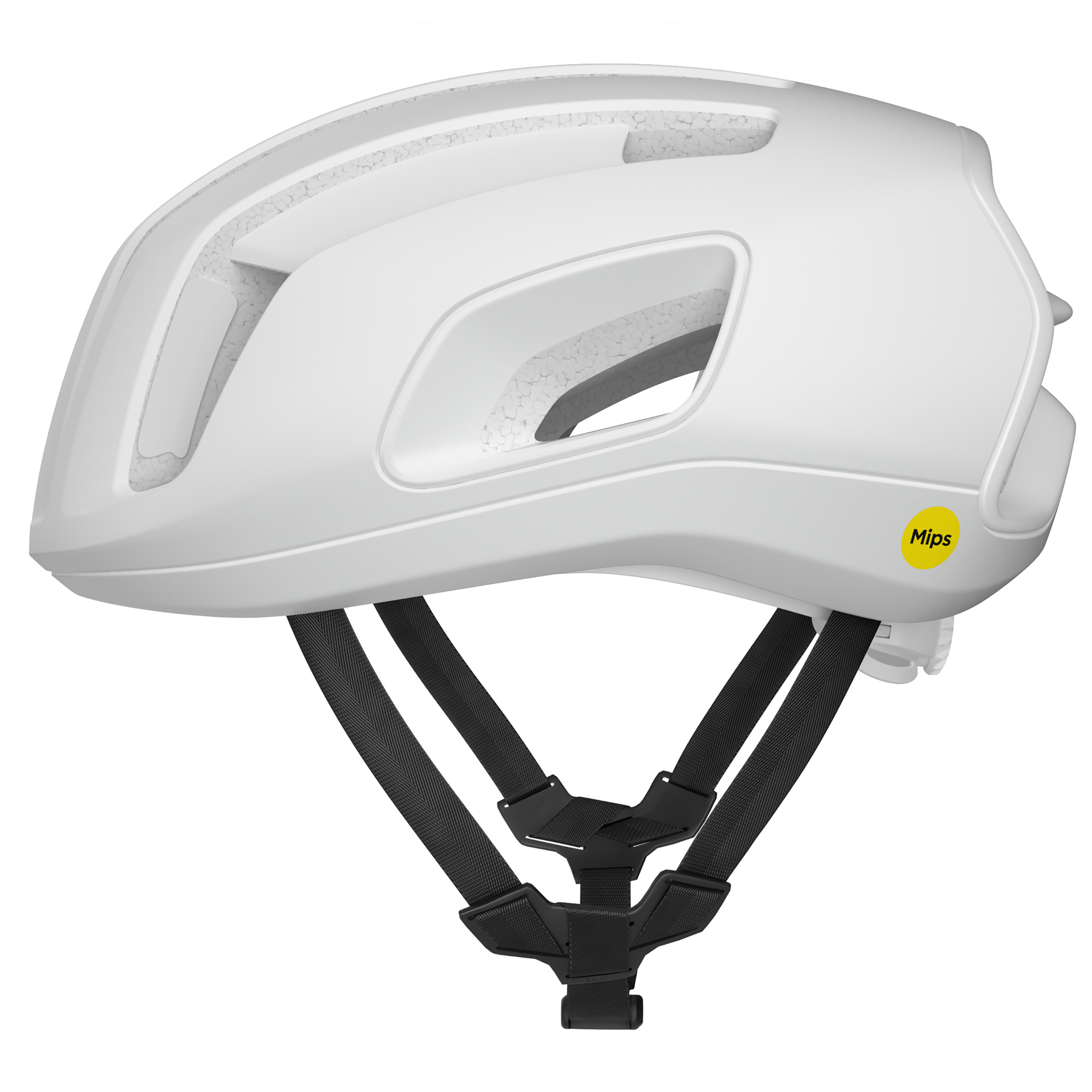
➕ Well ventilated
➕ Comfortable
➕ Lots of colour options
➖ Expensive
POC's probably best known for its helmets and in our own helmet wind tunnel tests, it was POC's Procen that took the top spot as the best aero helmet due to its low drag numbers.
An all-out aero helmet is great for going as fast as possible, however, while its drag numbers are higher, the Cytal is our favourite for general road and gravel riding. It's a great fit, MIPS protection and breezy ventilation make it a versatile option for all riding. The Cytal also boasts a 5-star rating from the independent helmet testing experts at Virginia Tech, placing it 3rd overall in its 2025 testing.
There is also a POC Cytal Carbon version for those counting every gram.
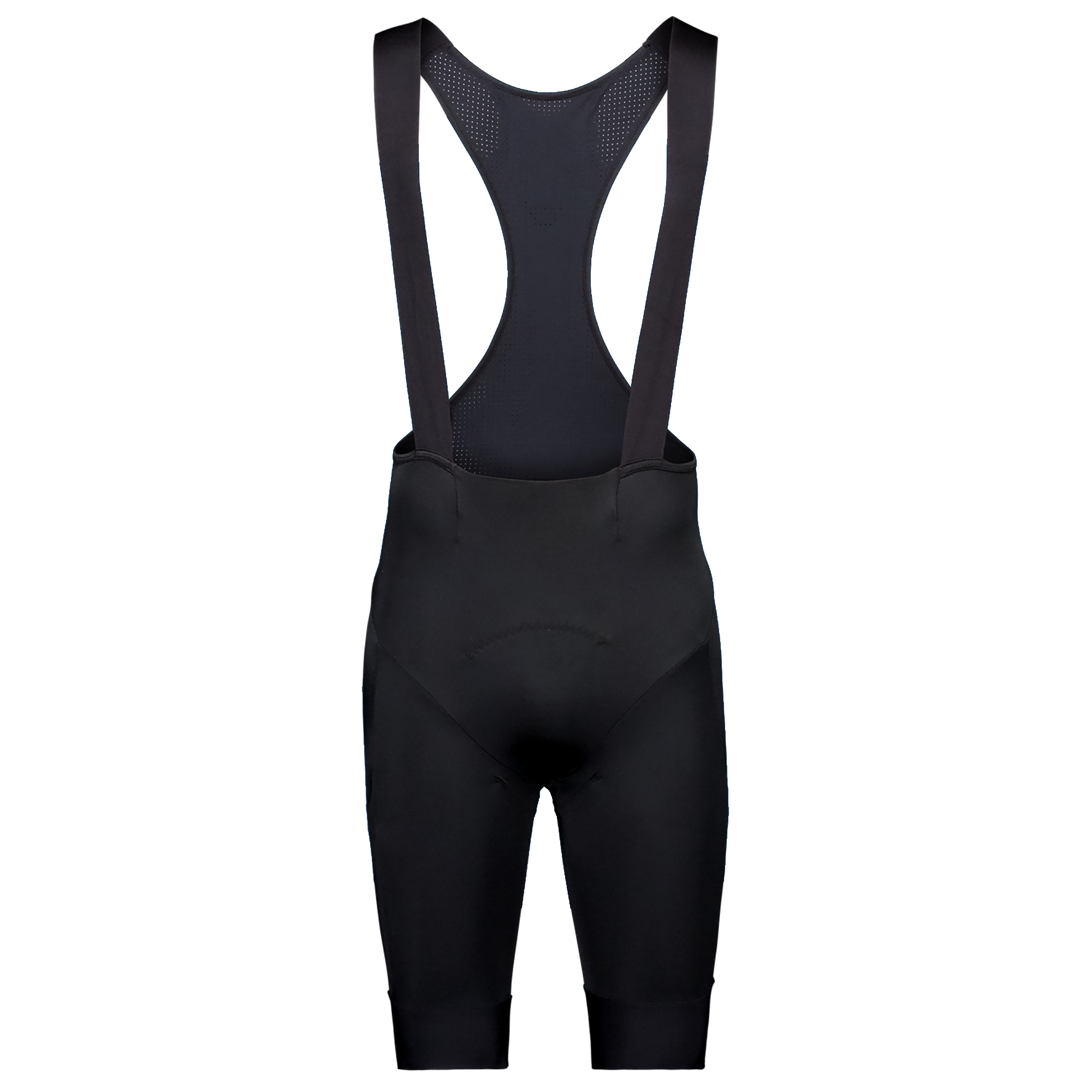
➕ New Novus Chamois reduces pressure points
➕ Comfortable fabric
➕ Large, secure pockets
➖ Only comes in black
POC's gone back to the drawing board to develop its new Cadence bib shorts, featuring an updated chamois and a new anatomical shape. POC has used pressure mapping research as a basis to develop the now wider and more supportive Novus chamois, which also features gel inserts to further reduce pressure points.
POC offers the Cadence shorts in both men's and women's versions, with the women's bib shorts featuring a unique strap system that allows them to be pulled down when nature calls. We are team pockets and would always go for the cargo version, although POC also does a pocketless version too.
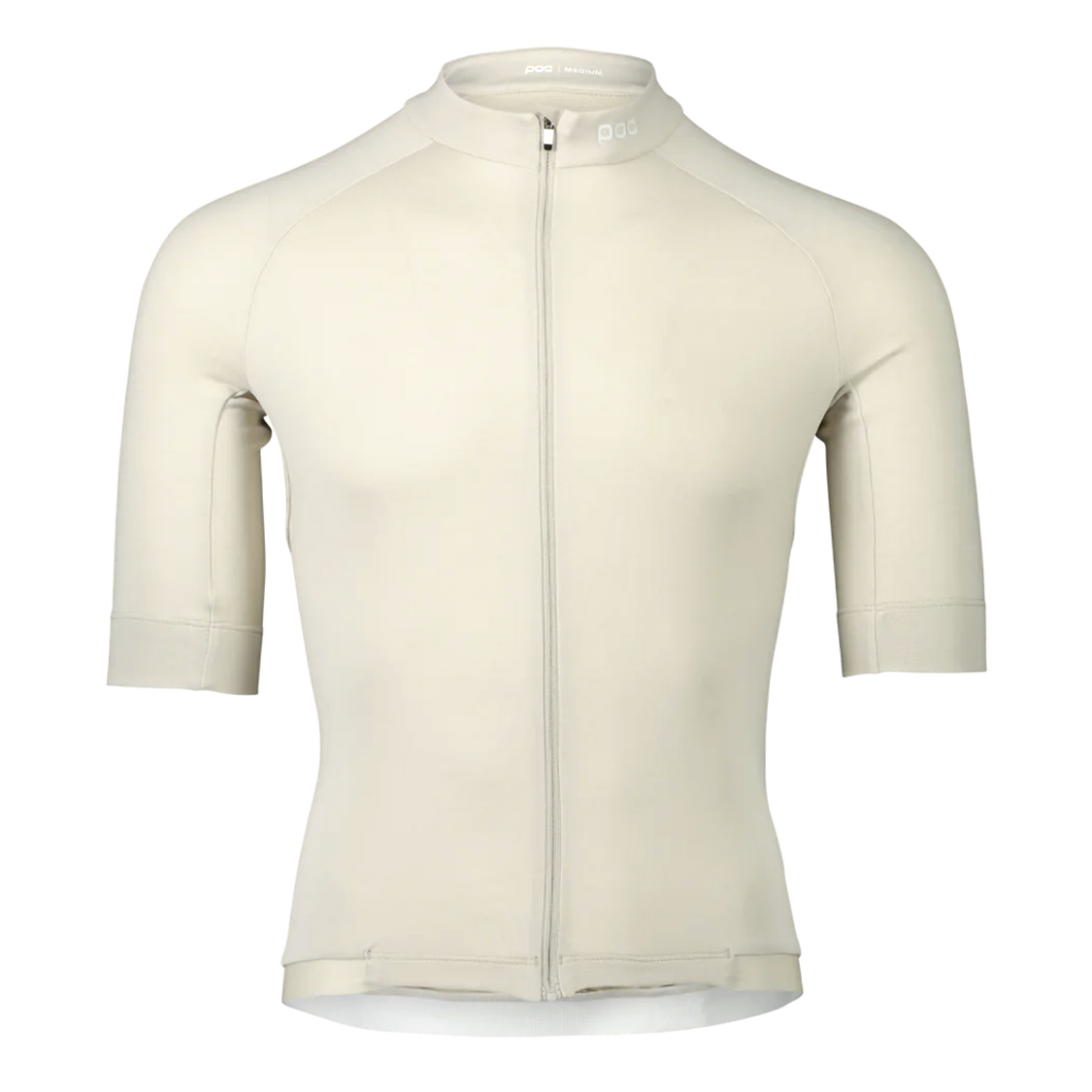
➕ Tall neckline
➕ Quality pockets
➕ Reasonable price
➖ Zipper stretches bottom hem in front
Sustainability is complex and almost every interaction with the environment has positives and negatives. Merino wool isn't without drawbacks but it is biodegradable and it reduces the need for petroleum-based synthetic fibres, so it tends to show up a lot in discussions of sustainability. There are other merino blend jerseys on this list but the pricing for both of them is quite a bit higher than the POC Muse jersey. The Muse is hardly cheap but it's significantly less than Velocio or MAAP and it has its own personality. There's a nice high collar and long sleeves that are a joy to wear, plus quality pockets with plenty of structure.
Warranty
While it might not spring to mind to think of a warranty with your cycling clothing and kit, many brands now offer things like discounts on replacement items if they become damaged in a crash. This is particularly useful for helmets, as it goes without saying that they should not continue to be used after being involved in a crash.
The same goes for clothes, in that many brands now offer free repairs or repair items for a small fee, often using patches from secondhand bits of other sections of clothing.
To determine what (if any) warranty there is with a bit of cycling clothing, it's best to check the manufacturer's website directly.
Best bike brands: The longlist
Albion Cycling is a Yorkshire, England-based cycling clothing brand that burst onto the scene offering premium kit. Their ethos is to make "well-made products that last."
Danish brand Pas Normal Studios is known for its muted designs and stylish apparel. It's a premium brand with a price tag that reflects the company's quality and sustainable manufacturing.
A London-based brand, Universal Colours is known for its high-quality cycling apparel. It often features block colour designs and the brand takes sustainability seriously, recently launching a marketplace for customers to buy and sell secondhand kit.
The latest race content, interviews, features, reviews and expert buying guides, direct to your inbox!
Josh hails from the Pacific Northwest of the United States but would prefer riding through the desert than the rain. He will happily talk for hours about the minutiae of cycling tech but also has an understanding that most people just want things to work. He is a road cyclist at heart and doesn't care much if those roads are paved, dirt, or digital. Although he rarely races, if you ask him to ride from sunrise to sunset the answer will be yes.
Height: 5'9"
Weight: 140 lb.
Rides: Salsa Warbird, Cannondale CAAD9, Enve Melee, Look 795 Blade RS, Priority Continuum Onyx
